Prior Meetings
JGSSN features a variety of informative sessions!
Meetings held at the Sahara West Library (and via Zoom during the pandemic)
Meetings held at the Sahara West Library (and via Zoom during the pandemic)

July 21, 2024: Guest speaker, Curt Witcher, presented: "Making the Genealogy Center in the Allen County Public Library Your Research Assistant With an Emphasis on Jewish Genealogical Research"
"Making the Genealogy Center in the Allen County Public Library Your Research Assistant With an Emphasis on Jewish Genealogical Research"
Learn how you can use the resources of this national family history repository for free from anywhere in the world while also discovering what research gems are available for those who can come to the Genealogy Center in person.
The Allen County Public Library Genealogy Center in Fort Wayne, Indiana, is renowned for its extensive genealogy resources, including thousands of valuable documents and records to help with family history research. It also features research librarians with expertise in genealogy to assist visitors and an online platform for accessing many of these resources remotely.
It's no coincidence that the 2025 annual conference of the International Association of Jewish Genealogy Societies will be held in Fort Wayne, Indiana.
About Curt Witcher:
Curt Witcher is the Director of Special Collections at the Allen County Public Library, managing the widely acclaimed Genealogy Center as well as the Rolland Center for Lincoln Research. He is a former president of both the Federation of Genealogical Societies and the National Genealogical Society, and the founding president of the Indiana Genealogical Society. Curt currently serves on the Indiana State Historical Records Advisory Board, the Indiana Historical Society’s publications committee, and the executive committee of the Friends of the Lincoln Collection of Indiana’s Board of Directors. He also serves on the Northeast Indiana Jewish Genealogy Society board of directors as well as an advisor for the African American Genealogical Society of Fort Wayne.
Curt is distinguished as a fellow of both the Indiana Genealogical Society and the Utah Genealogical Association. Over the decades he led collaborative national efforts to preserve and make more accessible historical data. For those efforts he has received the Federation of Genealogical Societies’ Rabbi Malcolm H. Stern Humanitarian Award and the National Genealogical Society’s P. William Filby Award for outstanding, life-time contributions to genealogical librarianship. Curt’s passion for finding families’ stories and his belief in the power of those stories to change lives has been recognized by numerous organizations, most recently receiving the Indiana Historical Society’s 2019 Eli Lilly Lifetime Achievement Award for extraordinary contributions to the field of history.
| gen_making_the_gen_your_research_assistant-jewish_focus.pdf |

June 16, 2024: Guest speaker, Sam Giordano, presented "My Grandmother Was an Alien???"
"My Grandmother Was an Alien???"
Researching U.S. Federal censuses involves examining population counts and various schedules that have been conducted every ten years since 1790.
Searching the United States Federal Censuses can be an enriching journey, but it requires patience, strategy, and an understanding of the available data.
You can unlock a treasure trove of insights into the lives of past generations, piecing together information provided over the years in these Censuses. So, let's embark on this journey through time and discover the secrets hidden within the pages of the United States Federal Censuses.
About Sam Giordano:
Sam has been researching the past 20+ years in Illinois & Wisconsin, Croatia/Hungary, Italy, Lithuania, Poland, Mexico, and Spain. She is a former member of the Las Vegas PC User Group and served as Chairperson of their Genealogy SIG.
She joined CCNGS in 2005 and has served in various positions on the Board and is currently the VP of Education.

May 19, 2024: Guest speaker Susan Dubin presented "Not Like Sheep: Resistance During the Holocaust"
"Not Like Sheep: Resistance During the Holocaust"
Although facing a formidable enemy with the odds stacked against them, people DID fight the Nazis in any way they could. From joining the resistance and fighting with the Partisans to refusing to give up their customs and ceremonies to continuing to care for others and express their own desire for culture through art, music, and literature, resistance wore many faces. For the Jewish people, just surviving was an act of resistance. There were several German attempts to fight against the Nazis as well. In this presentation, we will explore the different ways people resisted and learn about some individuals who played significant roles.
About Susan Dubin:
Susan Dubin is the library and education consultant to the Sperling Kronberg Mack Holocaust Resource Center located in Las Vegas. This position led her to work with the World Federation of Jewish Child Holocaust Survivors and Descendants, Generations of the Shoah International, and Association of Holocaust Organizations in organizing their international conferences. As a library and education consultant, she provides classes for Clark County School District teachers and students in Holocaust education. In addition, she organizes community events that feature authors, artists, and musicians. Kol Isha: Poems in the Voices of Women from the Bible was her first book. She has five other titles which include Book of Ruth, A Passover Haggadah in Poems, Katzele and the Silver Candlesticks, Jewish Stories and Poems All Around the Year, and The Story of Esther. Susan was the recipient of the Dorothy Schroeder Award and Fanny Goldstein Award for contributions to the field of Judaica Librarianship as well as the Milken Family Foundation Distinguished Educator Award. In 2020, she was named Jewish Educator of the Year for the state of Nevada. She is listed in Who’s Who in Education and Who’s Who of American Women
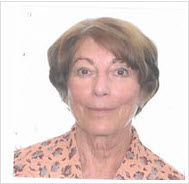
April 14, 2024: Guest speaker Michelle Metz presented "A Life Well Lived is the Best Revenge"
"A Life Well Lived is the Best Revenge"
Join us for a captivating lecture as we delve into the remarkable life journey of Michelle Metz, who was born in France during the Nazi occupation. She faced early adversity as her parents and aunt were arrested when she was just six months old in June 1944, ultimately being sent to Auschwitz and other concentration camps. Fortunately, she survived with the help of Resistance fighters and her grandparents.
About Michelle Metz:
After the war, Michelle moved to New York in 1951, where she eventually obtained a B.A. in Linguistics and a M.S. in Communication Disorders. She settled into a successful career in public relations, linguistics, and employee benefits, all while raising 2 children. Now retired, she splits her time between Las Vegas and Oregon, where her children and grandchildren reside.
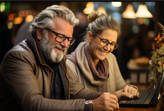
March 17, 2024
"A Day of Individual Help - from JGSSN mentors"
Several experienced JGSSN members will be on hand to help you with either Ancestry.com, FamilySearch.org, or JewishGen.org. Sign up for one or two 20-minute research strategy consultations. Potential areas that the mentor can help with: creating an account, starting a family tree, navigating the website, search techniques, ete. Our goal is to empower you by identifying good next steps to take in your research journey.
"A Day of Individual Help - from JGSSN mentors"
Several experienced JGSSN members will be on hand to help you with either Ancestry.com, FamilySearch.org, or JewishGen.org. Sign up for one or two 20-minute research strategy consultations. Potential areas that the mentor can help with: creating an account, starting a family tree, navigating the website, search techniques, ete. Our goal is to empower you by identifying good next steps to take in your research journey.
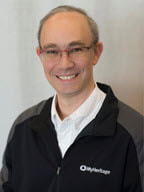
February 25, 2024: Guest speaker Daniel Horowitz from MyHeritage presented: "How Artificial Intelligence (AI) Can Help Genealogists" + "When There's a Will, There's a Way"
"How Artificial Intelligence (AI) Can Help Genealogists"
Everybody is talking about AI these days, and there are multiple, fun, and useful tools available that can assist with your genealogy: from automatic photo colorization, enhancement, and repair to photo animation, transliteration, and automatic detection of facts and repositories. Daniel will showcase some of the tools available and demonstrate how to utilize AI technology to enhance your family history research.
"When There's a Will, There's a Way"
When Daniel was asked to review the will of a distant relative to help find that person’s descendants, he utilized a number of tools and strategies to crack the case and find the people he was looking for. Come learn how you can do the same.
About Daniel Horowitz
Daniel is the Expert Genealogist from MyHeritage. He speaks at genealogy conferences around the world. He has been dedicated to genealogy since 1986. He was the teacher and the study guide editor of the family history project “Searching for My Roots” in Venezuela for 15 years. Daniel is involved in several crowdsource digitization and transcription projects and holds a board level position at the Israel Genealogy Research Association (IGRA).
| where_theres_a_will_theres_a_way…_to_research_your_family.pdf |
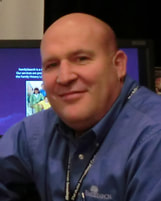
January 21, 2024: Guest speaker Todd Knowles will present "Finding Your Jewish Ancestors in FamilySearch.org"
"Finding Your Jewish Ancestors in FamilySearch.org"
For more than 125 years, FamilySearch and its predecessors have been gathering, preserving and sharing genealogical information worldwide. Through the website www.familysearch.org, researchers all over the world have free access to billions of records. This presentation will help the attendees find the records of their Jewish ancestors within the records of FamilySearch.
About Todd Knowles
W. Todd Knowles is an Accredited Genealogist who currently serves as a Deputy Chief Genealogy Officer at FamilySearch, where he has been employed for over 25 years. His personal family history story began at the age of 11, when he first discovered his own Jewish heritage. That journey, which led to the Knowles Collection, still continues today. The Knowles Collection is comprised of 6 databases which contain the records of over 1.5 million Jews. The collection is available free of charge at www.familysearch.org. The collection also has a blog which provides updates on the records (knowlescollection.blogspot.com). Todd is a past President of the Utah Jewish Genealogical Society (UJGS) and currently serves as a Trustee of the International Society for British Genealogy and Family History (ISBGFH).
| using_familysearch_12024.pdf |
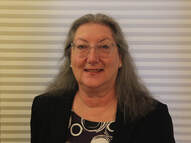
November 12, 2023: Guest speaker Robinn Magid will present "Getting the Most from JRI-Poland.org"
"Getting the Most from JRI-Poland.org"
If your ancestors lived in the current or former Polish territories, then the new JRI-Poland.org website and database can help you learn more about your Jewish family and understand their lives within a historical context. From individual to family, from family to Jewish Community, JRI-Poland helps researchers find pertinent data, understand it, and use it to their best advantage. Join us for a lively presentation and whirlwind tour of the JRI-Poland website and database. Learn where to focus your attention and discover best practices from a long-time JRI-Poland insider. Ample time will be included for a question-and-answer session.
About Robinn Magid
Robinn Magid is the Assistant Director of JRI-Poland.org and a recent recipient of the IAJGS Lifetime Achievement Award. Robinn recently became the project manager of the JRI-Poland “NextGen Project” to redesign the JRI-Poland website, database and search engine. She a frequent speaker and writer on Jewish genealogy topics.
Robinn's genealogical work resulted in her being recognized by the City of Lublin, Poland - her grandmother's hometown - with a medal in 2017 from the mayor for inspring the future and cultural identity of that city of 340,000 people on Lublin's 700th birthday.
Robinn has spoken at many IAJGS conferences on behalf of JRI-Poland and has served as the chair of two groundbreaking conferences: IAJGS 2018 Warsaw, Poland conference, and the IAJGS 2020 Virtual Conference on Jewish Genealogy. She is a member of the San Francisco - Bay Area JGS and has spoken to her group and to other societies. Robinn and her husband have raised four wonderful kids and recently became grandparents.
| jri-poland_hidden_treasures_4_page_handout_2022__1_.docx |
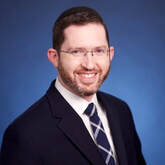
October 15, 2023: Guest speaker Avraham Groll will present "JewishGen"
"Introduction to JewishGen and Jewish Genealogy"
JewishGen.org is one of the most important and most visited Jewish genealogy websites in the world. As the "Global Home for Jewish Genealogy" it offers access to millions of records, important search tools, education resources, extensive community and historical information, and access to a global community of passionate researchers dedicated to Jewish life. In this presentation, Avraham Groll will discuss common challenges and obstacles that people encounter when researching their family history, and how JewishGen can help.
About Avraham Groll
Avraham Groll has a passion for connecting people with their Jewish roots. As Executive Director of JewishGen, he has partnered with a dedicated team of volunteers to position JewishGen as the premier resource for Jewish genealogical research, and he continues to drive innovation and expansion in order to meet the evolving needs of the global Jewish Genealogical community. Avraham has a diverse educational background that includes an MBA from Montclair State University, an MA in Judaic Studies from Touro College, a certificate in Jewish Executive Leadership from Columbia University, and a BS in Business Administration from Ramapo College. His two years of study at Yeshiva Ohr Yerushalayim in Israel have also informed his approach to leadership, community building, and dedication to preserving our collective Jewish family history and heritage.
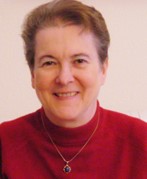
September 10, 2023: Guest speaker Lee Nishimoto will present "Emigration"
"Emigration"
These are records found in the country or locality from which the person or family is leaving. Consider these as “exit” records. In many cases people had to apply to leave, prove that they were not in debt or criminal or under military draft and pay fees. These are unique and little known databases or collections that add valuable information to the family story.
About Lee Nishimoto
Lee is a professional genealogical researcher with more than 45 years of research and teaching experience. She received her B.S. degrees in Genealogical Research and Psychology from Brigham Young University. She has lived in many places in the U.S. and developed and taught courses at many colleges and universities. She has also lived in Europe and Asia. While her children were growing up she operated her own specialized research and publishing company. She helped create and hosted a genealogy TV program that was broadcast in the Washington, D.C.-Baltimore areas. She has published books and materials related to genealogy. She is a genealogy and history presenter for many genealogy societies, conferences, and seminars. She was the Director of the Las Vegas Nevada FamilySearch Library in Las Vegas with her husband (2016-2019). For the 2021 Roots Tech she was a Special Research Consultant for multiple countries. Lee is now teaching classes at the FamilySearch Library and is back to professional research.
| emigration.pdf |
| emigration_websites.pdf |
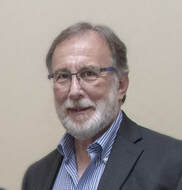
July 16, 2023: Guest speaker Mark Halpern will present "Finding and Understanding Bubbe and Zayde's Galician Vital Records"
"Finding and Understanding Bubbe and Zayde's Galician Vital Records"
A great many Galician researchers have acquired copies of family records from repositories in Poland and Ukraine or online images provided by a State Archive or a Genealogical organization. Over the past twenty years, the work of Jewish Records Indexing - Poland and Gesher Galicia has made these records more readily available to all Galician researchers. This session offers an in-depth examination of Galician vital records along with a strategic framework to help researchers in acquiring records to further their research. A historical perspective covering the regulations that governed Jewish recordkeeping in Galicia will be provided. Most importantly, this talk will make sense of the regulations covering civil marriages that impacted the legitimacy and surnames of children. Close examination of sample birth, marriage, and death records will reveal the information contained in the records, identify the records having the most genealogical value, and uncover surprises found in many of these records.
About Mark Halpern
In 1996, while on business in Poland, Mark visited Bialystok, his mother’s birthplace. Upon his return home to Philadelphia, Mark dove down the rabbit hole searching his Galician and Polish roots. Now retired, Mark works with JRI–Poland, JewishGen, IAJGS, and Jewish Genealogical and Archival Society of Greater Philadelphia (JGASGP) helping others research their roots. Mark is on the Board and Executive Committee of JRI-Poland, the founder of BIALYGen – the JewishGen Bialystok area research group, and past President of JGASGP. Mark chaired the program committees for the 2009 and 2013 IAJGS Conferences, served on the Program Committees of the 2018, 2020, and 2021 Conferences, and served as advance coordinator for the 2018 Warsaw Conference. Mark was honored in 2018 with the IAJGS Lifetime Achievement Award.
| handout_galician_vital_records_jgssn_20230716_rev1.pdf |
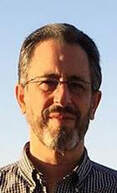
June 18, 2023: Guest speaker Ben Kempner will present "Using Social Media and Artificial Intelligence for Genealogy"
"Using Social Media and Artificial Intelligence for Genealogy"
Harness the power of collaboration using social media to advance your genealogy research. My biggest genealogical discovery resulted from a post to a Facebook group. I discovered a limb of the family tree that we thought had been lost in WWII. I'll show you what I posted and the wealth of information that post uncovered.
This lecture will provide examples using Facebook Groups, Ancestry.com Message Boards, and even YouTube and Twitter to further your research. If you're not a Facebook user and have privacy concerns, we'll discuss security settings and how to share your questions with just a select group of people. Have a document in a different language? We'll talk about ways to get things translated. Other tips and resources will be shared!
Did you know that artificial intelligence (AI) can help you with your genealogy? In addition to using social media, we will also explore how AI can assist with your genealogy research, easily create life stories or anecdotes, and accomplish many other tasks. AI's power to assist you is only limited by one's imagination! Does this sound intimidating? It's not! Anyone can learn how to use an AI tool called ChatGPT in seconds.
About Ben Kempner
Ben is currently the VP of JGSSN. He has taught DNA, Ancestry.com, Using Social Media, and other courses at the Las Vegas FamilySearch Center and for other genealogy societies for several years. He has recently developed an interest in artificial intelligence and how it can be used for genealogy and many other purposes. He retired from a 39-year career at IBM.
Handouts:
| social_media_and_artificial_intelligence_handout.pdf |
| some_chatgpt_prompts_to_try.pdf |
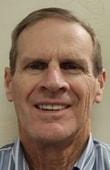
May 21, 2023: Guest speaker Mark Waite will present "Why Come to the Las Vegas FamilySearch Center?"
"Why Come to the Las Vegas FamilySearch Center?"
Learn tips, tools, and resources to help you discover and gather information about your family history. We will review the benefits of the FamilySearch Center such as free access to:
- A variety of genealogical programs including Ancestry, MyHeritage, Fold3, newspaper sites and many more
- Experienced family history consultants
- Scanning equipment to digitize your photos, slides, documents, videos, audio tapes, and other media
- Classes on a variety of topics
- Studio for creating recordings of your family history
About Mark Waite
Mark is the current Director at the Las Vegas FamilySearch Center. He is a lifelong resident of Las Vegas, and 4th generation southern Nevadan. His role as Director is a volunteer position. He retired from a career in construction management a year and a half ago and has served in various capacities in his church, the Church of Jesus Christ of Latter-day Saints.
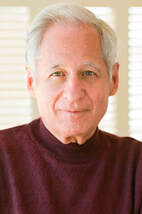
April 16, 2023: Guest speaker Steve Morse will present THREE lectures!
1950 Census, One Year Later
The 1950 Census was released on April 1, 2022, after being sealed for 72 years. Since the release date, many of us have tried to find records in the census and have run into various quirks. This presentation will discuss the things that we have learned since opening day.
The specific topics covered are searching the census by name and what was involved in creating a searchable name index, searching the census by location and the various websites that have tools to support this, confusion between census sheets and census pages, transient handling and the Individual Census Reports, and the cross-referencing that was done if nobody was home when the census taker came to call.
One-Step Website, A Potpourri of Genealogical Search Tools
The One-Step website started out as an aid for finding passengers in the Ellis Island database. Shortly afterwards it was expanded to help with searching in the 1930 census. Over the years it has continued to evolve and today includes about 300 web-based tools divided into 16 separate categories ranging from genealogical searches to astronomical calculations to last-minute bidding on e-bay. This presentation will describe the range of tools available and give the highlights of each one.
History of the Geography of New York City
New York City has undergone numerous changes in its geographical boundaries over the years. An understanding of these boundaries is important in order to know what archive to search in when looking for vital records.
This talk shows the changes to New York City's geography, and describes the difference between New York City and the City of New York. The origin of the counties and their changing boundaries, along with the early geographies of Brooklyn and Queens are presented. And finally the consolidation of 1898 that created the City of New York and defined the five boroughs is discussed.
About Steve Morse
Stephen Morse is the creator of the One-Step Website for which he has received both the Lifetime Achievement Award and the Outstanding Contribution Award from the International Association of Jewish Genealogical Societies, Award of Merit from the National Genealogical Society, first-ever Excellence Award from the Association of Professional Genealogists, and two awards that he cannot pronounce from Polish genealogical societies.
In his other life Morse is a computer professional with a doctorate degree in electrical engineering. He has held various research, development, and teaching positions, authored numerous technical papers, written four textbooks, and holds four patents. He is best known as the architect of the Intel 8086 (the granddaddy of today's Pentium processor), which sparked the PC revolution more than 40 years ago.
1950 Census, One Year Later
The 1950 Census was released on April 1, 2022, after being sealed for 72 years. Since the release date, many of us have tried to find records in the census and have run into various quirks. This presentation will discuss the things that we have learned since opening day.
The specific topics covered are searching the census by name and what was involved in creating a searchable name index, searching the census by location and the various websites that have tools to support this, confusion between census sheets and census pages, transient handling and the Individual Census Reports, and the cross-referencing that was done if nobody was home when the census taker came to call.
One-Step Website, A Potpourri of Genealogical Search Tools
The One-Step website started out as an aid for finding passengers in the Ellis Island database. Shortly afterwards it was expanded to help with searching in the 1930 census. Over the years it has continued to evolve and today includes about 300 web-based tools divided into 16 separate categories ranging from genealogical searches to astronomical calculations to last-minute bidding on e-bay. This presentation will describe the range of tools available and give the highlights of each one.
History of the Geography of New York City
New York City has undergone numerous changes in its geographical boundaries over the years. An understanding of these boundaries is important in order to know what archive to search in when looking for vital records.
This talk shows the changes to New York City's geography, and describes the difference between New York City and the City of New York. The origin of the counties and their changing boundaries, along with the early geographies of Brooklyn and Queens are presented. And finally the consolidation of 1898 that created the City of New York and defined the five boroughs is discussed.
About Steve Morse
Stephen Morse is the creator of the One-Step Website for which he has received both the Lifetime Achievement Award and the Outstanding Contribution Award from the International Association of Jewish Genealogical Societies, Award of Merit from the National Genealogical Society, first-ever Excellence Award from the Association of Professional Genealogists, and two awards that he cannot pronounce from Polish genealogical societies.
In his other life Morse is a computer professional with a doctorate degree in electrical engineering. He has held various research, development, and teaching positions, authored numerous technical papers, written four textbooks, and holds four patents. He is best known as the architect of the Intel 8086 (the granddaddy of today's Pentium processor), which sparked the PC revolution more than 40 years ago.
|
| ||||||
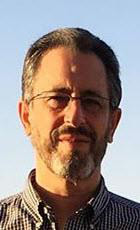
March 19, 2023: Guest speaker Ben Kempner will present "I received my DNA results! Now what do I do with my thousands of matches?"
I received my DNA results! Now what do I do with my thousands of matches?"
Learn how to use your DNA results as an effective tool in your genealogy tool belt. We will help you identify your best DNA matches that you may want to contact to learn more about your family. This lecture will be relevant to anyone researching someone who comes from a culture where marrying within the ethnic, social, or religious group is the practice. Examples of these groups include Ashkenazi Jews, Polynesians, Amish, French Canadians, and many others.
We’ll set the stage with a little bit of history and a slide or two on science before delving into tips and techniques for narrowing down your matches in Ancestry, 23andMe, MyHeritage and Family Tree DNA (FTDNA). Finally, we’ll look at strategies for contacting your “best” DNA matches.
About Ben Kempner
Ben is currently the VP of JGSSN. He has taught DNA, Ancestry and other courses at the Las Vegas FamilySearch Center for several years. He has tested his DNA at all 4 major DNA companies. He found previously unknown 2nd & 3rd cousins in Australia, Germany, Denver, Seattle, and one cousin who coincidentally lives 15 minutes away in Summerlin. He retired from a 39-year career at IBM.
I received my DNA results! Now what do I do with my thousands of matches?"
Learn how to use your DNA results as an effective tool in your genealogy tool belt. We will help you identify your best DNA matches that you may want to contact to learn more about your family. This lecture will be relevant to anyone researching someone who comes from a culture where marrying within the ethnic, social, or religious group is the practice. Examples of these groups include Ashkenazi Jews, Polynesians, Amish, French Canadians, and many others.
We’ll set the stage with a little bit of history and a slide or two on science before delving into tips and techniques for narrowing down your matches in Ancestry, 23andMe, MyHeritage and Family Tree DNA (FTDNA). Finally, we’ll look at strategies for contacting your “best” DNA matches.
About Ben Kempner
Ben is currently the VP of JGSSN. He has taught DNA, Ancestry and other courses at the Las Vegas FamilySearch Center for several years. He has tested his DNA at all 4 major DNA companies. He found previously unknown 2nd & 3rd cousins in Australia, Germany, Denver, Seattle, and one cousin who coincidentally lives 15 minutes away in Summerlin. He retired from a 39-year career at IBM.
| dna_for_jgssn_-_1_up.pdf |
| dna_for_jgssn_-_2_up.pdf |

February 26, 2023: Guest speaker Daniel Horowitz from MyHeritage will present two lectures!
Research Jewish & Israel Genealogical Resources on the Internet
Learn about the main repositories for Jewish and Israeli Genealogy available on the internet. This program will illustrate how to search efficiently in different databases, both Jewish (JewishGen, GesherGalicia, JRI-Poland) and non-Jewish (FamilySearch, Ancestry, MyHeritage), to find the information you are looking for. In this session, you’ll also discover many rich resources for learning about your ancestors who lived in, passed through, or died in Israel.
MyHeritage Latest Features Overview
MyHeritage is at the forefront of innovation in genealogy and is constantly introducing new and exciting features to help users take their research to the next level. In this session, Daniel will give a walkthrough of the latest and greatest from MyHeritage and show you how to make the most of these features: searching for new records, latest DNA features, the tools to improve your photos and create amazing DeepStories.
About Daniel Horowitz
Daniel is the Expert Genealogist from MyHeritage. He speaks at genealogy conferences around the world. He has been dedicated to genealogy since 1986. He was the teacher and the study guide editor of the family history project “Searching for My Roots” in Venezuela for 15 years. Daniel is involved in several crowdsource digitization and transcription projects and holds a board level position at the Israel Genealogy Research Association (IGRA).
Research Jewish & Israel Genealogical Resources on the Internet
Learn about the main repositories for Jewish and Israeli Genealogy available on the internet. This program will illustrate how to search efficiently in different databases, both Jewish (JewishGen, GesherGalicia, JRI-Poland) and non-Jewish (FamilySearch, Ancestry, MyHeritage), to find the information you are looking for. In this session, you’ll also discover many rich resources for learning about your ancestors who lived in, passed through, or died in Israel.
MyHeritage Latest Features Overview
MyHeritage is at the forefront of innovation in genealogy and is constantly introducing new and exciting features to help users take their research to the next level. In this session, Daniel will give a walkthrough of the latest and greatest from MyHeritage and show you how to make the most of these features: searching for new records, latest DNA features, the tools to improve your photos and create amazing DeepStories.
About Daniel Horowitz
Daniel is the Expert Genealogist from MyHeritage. He speaks at genealogy conferences around the world. He has been dedicated to genealogy since 1986. He was the teacher and the study guide editor of the family history project “Searching for My Roots” in Venezuela for 15 years. Daniel is involved in several crowdsource digitization and transcription projects and holds a board level position at the Israel Genealogy Research Association (IGRA).
| exploring_billions_of_historical_records_on_myhertages_search_engine.pdf |
| research_jewish___israel_genealogical_resources_on_the_internet.pdf |
| finding_jewish_records_in_the_myheritage_search_engine.pdf |
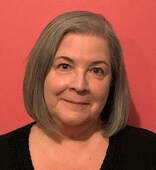
January 15, 2023: Guest speaker Mary Barkan will present "Genealogy Resolutions for a New Year"
"Genealogy Resolutions for a New Year"
Start your genealogy year off right with a survey of possible genealogical resolutions. Mary Barkan will present resolutions for you to consider for 2023. This informative and fun program will have you ready for a successful year.
About Mary Barkan
Mary Barkan, BA, MT, is the former editor of Family Legacies, the newsletter of the Jewish Genealogy Society of Southern Nevada, Inc. and is a frequent lecturer on genealogical topics for that group. She is the immediate past president of JGSSN. She has also presented programs for the Clark County Genealogical Society.
She has been a family historian since the mid-1980s.
"Genealogy Resolutions for a New Year"
Start your genealogy year off right with a survey of possible genealogical resolutions. Mary Barkan will present resolutions for you to consider for 2023. This informative and fun program will have you ready for a successful year.
About Mary Barkan
Mary Barkan, BA, MT, is the former editor of Family Legacies, the newsletter of the Jewish Genealogy Society of Southern Nevada, Inc. and is a frequent lecturer on genealogical topics for that group. She is the immediate past president of JGSSN. She has also presented programs for the Clark County Genealogical Society.
She has been a family historian since the mid-1980s.
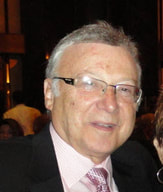
November 20, 2022: Guest speaker Bert Reiner will present "My Journey from Shanghai to Las Vegas"
"My Journey from Shanghai to Las Vegas"
Bert will be presenting a film and presentation about his life in the Shanghai Ghetto during World War II. He was a young boy when he and his parents were forced to leave their home in Germany in 1939 (after Kristallnacht), and wound up in Shanghai, China (the only port where Jews were accepted). The film “My Shanghai Memoirs” is the fascinating story of his life there during the war; he will discuss how his family survived the Ghetto under Japanese occupation, and then the Communist takeover. They left Shanghai for the U.S. in 1949. FYI, this film was recently accepted at Yad Vashem for showings about the diaspora.
About Bert Reiner
Bert is now retired, has had 30+ years’ experience in the development, quality and manufacture of toys, and juvenile furniture. He had worked in several toy companies, the last as Sr. VP at Coleco, in Hartford, CT. He and his wife Sandy now live in Las Vegas; they have three children and eight grand-children.
"My Journey from Shanghai to Las Vegas"
Bert will be presenting a film and presentation about his life in the Shanghai Ghetto during World War II. He was a young boy when he and his parents were forced to leave their home in Germany in 1939 (after Kristallnacht), and wound up in Shanghai, China (the only port where Jews were accepted). The film “My Shanghai Memoirs” is the fascinating story of his life there during the war; he will discuss how his family survived the Ghetto under Japanese occupation, and then the Communist takeover. They left Shanghai for the U.S. in 1949. FYI, this film was recently accepted at Yad Vashem for showings about the diaspora.
About Bert Reiner
Bert is now retired, has had 30+ years’ experience in the development, quality and manufacture of toys, and juvenile furniture. He had worked in several toy companies, the last as Sr. VP at Coleco, in Hartford, CT. He and his wife Sandy now live in Las Vegas; they have three children and eight grand-children.
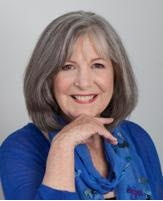
October 16, 2022: Guest speaker Joanne Gilbert, will present "Jewish Resistance & Remembrance: Lights in the Darkness"
"Jewish Resistance & Remembrance: Lights in the Darkness"
Based on extensive research and first-hand interviews, author Joanne Gilbert's books and presentations celebrate the extraordinary, teenage and pre-teen girls, who dared to defy the Nazis and their collaborators in Occupied Europe. That in their elder years, they graciously shared their true stories of anti-Nazi resistance, is a tribute to their life-long commitment to showing that the Jewish People did not go “. . . silently like sheep to the slaughter.” Seventy-seven years after the end of WWII, their courage still inspires and lights the way for all of us.
Joanne’s adventures in finding, interviewing, writing about, and becoming loving friends with these women—still indomitable in their 90s and beyond — show us that it’s never too early —nor too late — to do something to help "heal the world.”
About Joanne Gilbert
Award-winning author, Joanne D. Gilbert, grew up in the 1950s-60s, in predominantly Jewish, Oak Park, Michigan, where she was profoundly affected by the stories she heard from neighboring Holocaust Survivors. Her life and work have been inspired by her Grandmother, Millie Ron’s memories of her beloved family, who tragically, were murdered in Vilna, Lithuania when the Nazis destroyed the Jewish community there. In their honor, Joanne is dedicated to finding and celebrating female Jewish heroism during the Holocaust. Her presentations as well as her books, WOMEN OF VALOR: Polish Jewish Resisters to the Third Reich (2018), and, A VICTORY FOR MIRIAM! The Little Jewish Girl Who Defied the Nazis (2019), have received outstanding reviews. Her next book WOMEN OF VALOR: German, French, & Dutch Resisters to the Third Reich, will be published in 2023. For information, please go to: www.joannedgilbert.com, or contact Joanne at: info@joannedgilbert.
"Jewish Resistance & Remembrance: Lights in the Darkness"
Based on extensive research and first-hand interviews, author Joanne Gilbert's books and presentations celebrate the extraordinary, teenage and pre-teen girls, who dared to defy the Nazis and their collaborators in Occupied Europe. That in their elder years, they graciously shared their true stories of anti-Nazi resistance, is a tribute to their life-long commitment to showing that the Jewish People did not go “. . . silently like sheep to the slaughter.” Seventy-seven years after the end of WWII, their courage still inspires and lights the way for all of us.
Joanne’s adventures in finding, interviewing, writing about, and becoming loving friends with these women—still indomitable in their 90s and beyond — show us that it’s never too early —nor too late — to do something to help "heal the world.”
About Joanne Gilbert
Award-winning author, Joanne D. Gilbert, grew up in the 1950s-60s, in predominantly Jewish, Oak Park, Michigan, where she was profoundly affected by the stories she heard from neighboring Holocaust Survivors. Her life and work have been inspired by her Grandmother, Millie Ron’s memories of her beloved family, who tragically, were murdered in Vilna, Lithuania when the Nazis destroyed the Jewish community there. In their honor, Joanne is dedicated to finding and celebrating female Jewish heroism during the Holocaust. Her presentations as well as her books, WOMEN OF VALOR: Polish Jewish Resisters to the Third Reich (2018), and, A VICTORY FOR MIRIAM! The Little Jewish Girl Who Defied the Nazis (2019), have received outstanding reviews. Her next book WOMEN OF VALOR: German, French, & Dutch Resisters to the Third Reich, will be published in 2023. For information, please go to: www.joannedgilbert.com, or contact Joanne at: info@joannedgilbert.
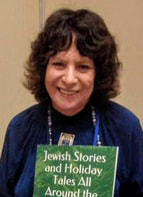
September 18, 2022: Guest speaker Susan Dubin will present "Introduction to the Sperling Kronberg Mark Holocaust Resource Center"
"Introduction to the Sperling Kronberg Mark Holocaust Resource Center"
The Holocaust was much more than concentration camps and the six million murdered by the Nazi’s. It was the life our ancestors were forced to live during World War II. This program will introduce you to many other aspects of this period of history. The resource center is full of books on the Holocaust and there are many original artifacts on display including an original tea pot made in Oskar Schindler’s factory!
About Susan Dubin
Susan Dubin is the library and education consultant to the Sperling Kronberg Mack Holocaust Resource Center located in Las Vegas. This position led her to work with the World Federation of Jewish Child Holocaust Survivors and Descendants, Generations of the Shoah International, and Association of Holocaust Organizations in organizing their international conferences. As a library and education consultant, she provides classes for Clark County School District teachers and students in Holocaust education. In addition, she organizes community events that feature authors, artists, and musicians. Kol Isha: Poems in the Voices of Women from the Bible was her first book. She has five other titles which include Book of Ruth, A Passover Haggadah in Poems, Katzele and the Silver Candlesticks, Jewish Stories and Poems All Around the Year, and The Story of Esther. Susan was the recipient of the Dorothy Schroeder Award and Fanny Goldstein Award for contributions to the field of Judaica Librarianship as well as the Milken Family Foundation Distinguished Educator Award. In 2020, she was named Jewish Educator of the Year for the state of Nevada. She is listed in Who’s Who in Education and Who’s Who of American Women
"Introduction to the Sperling Kronberg Mark Holocaust Resource Center"
The Holocaust was much more than concentration camps and the six million murdered by the Nazi’s. It was the life our ancestors were forced to live during World War II. This program will introduce you to many other aspects of this period of history. The resource center is full of books on the Holocaust and there are many original artifacts on display including an original tea pot made in Oskar Schindler’s factory!
About Susan Dubin
Susan Dubin is the library and education consultant to the Sperling Kronberg Mack Holocaust Resource Center located in Las Vegas. This position led her to work with the World Federation of Jewish Child Holocaust Survivors and Descendants, Generations of the Shoah International, and Association of Holocaust Organizations in organizing their international conferences. As a library and education consultant, she provides classes for Clark County School District teachers and students in Holocaust education. In addition, she organizes community events that feature authors, artists, and musicians. Kol Isha: Poems in the Voices of Women from the Bible was her first book. She has five other titles which include Book of Ruth, A Passover Haggadah in Poems, Katzele and the Silver Candlesticks, Jewish Stories and Poems All Around the Year, and The Story of Esther. Susan was the recipient of the Dorothy Schroeder Award and Fanny Goldstein Award for contributions to the field of Judaica Librarianship as well as the Milken Family Foundation Distinguished Educator Award. In 2020, she was named Jewish Educator of the Year for the state of Nevada. She is listed in Who’s Who in Education and Who’s Who of American Women
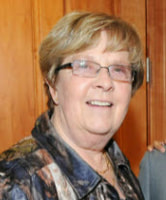
July 17, 2022: Guest speaker Margaret Louis will present "Immigration and Naturalization"
"Immigration and Naturalization"
Margaret will present an overview of the U.S. immigration records and the naturalization process, illustrated with documents from Jewish and other immigrants – both famous and not-so-famous. You will learn about immigration ports of entry, and how to find records for your family using a variety of tools including FamilySearch, Ancestry, Ellis Island, SteveMorse.org, and others. Valuable information can be hidden in these records. Learn how to search for your family and potentially find more than you anticipated. She will also identify the types of records that document the immigrant’s path to naturalization, and how to find them.
Using the correct techniques and websites, you’ll find new clues and gain valuable insights. You may even be able to create a timeline of your ancestor's experiences. Margaret will lead you on this journey.
About Margaret Louis
Margaret Louis has many years of experience researching family history in the Midwest USA and Germany, and has traced family lines to the 1600s. She has taught classes on genealogy topics and published two family history related books. Louis holds National Certification from the National Genealogical Society.
"Immigration and Naturalization"
Margaret will present an overview of the U.S. immigration records and the naturalization process, illustrated with documents from Jewish and other immigrants – both famous and not-so-famous. You will learn about immigration ports of entry, and how to find records for your family using a variety of tools including FamilySearch, Ancestry, Ellis Island, SteveMorse.org, and others. Valuable information can be hidden in these records. Learn how to search for your family and potentially find more than you anticipated. She will also identify the types of records that document the immigrant’s path to naturalization, and how to find them.
Using the correct techniques and websites, you’ll find new clues and gain valuable insights. You may even be able to create a timeline of your ancestor's experiences. Margaret will lead you on this journey.
About Margaret Louis
Margaret Louis has many years of experience researching family history in the Midwest USA and Germany, and has traced family lines to the 1600s. She has taught classes on genealogy topics and published two family history related books. Louis holds National Certification from the National Genealogical Society.
| immigration_and_naturalization_handout_-_11_pg_4mb.pdf |
|
| ||
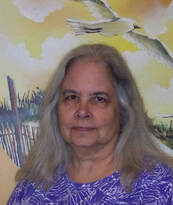
June 19, 2022: Guest speaker, Diane Sinclair, will present "Organizing Your Genealogy"
"Organizing Your Genealogy"
Genealogy is all about finding and obtaining information about our ancestors. Whether it is official records or family heirlooms, we treasure anything we get our hands on (almost to the brink of hoarding). However, with all these certificates, diaries, censuses, and other records we can easily become overwhelmed with paper and digital files. In “Organizing Your Genealogy”, I will break it down and show you examples of my research. You will discover tips & hints to help you create and follow your own Genealogy Organization Plan.
About Diane Sinclair
Diane has been doing Genealogy since 1981. She became interested when a friend convinced her to attend a beginner’s class offered by the Stearns County Heritage Center in Minnesota. She was always interested in her family history after listening to stories of castles, ultra-lavish living styles, old-time entertainment, and unlikely occupations.
She joined the Clark County Nevada Genealogical Society in 2004. One of her passions in life is to pass on her knowledge and experiences to others. Soon after joining CCNGS she was asked to fill the position of Vice- President. She was tasked with finding speakers for their yearly Spring and Fall Seminars as well as the monthly general membership meetings. Since then, Diane has presented many topics at the monthly meetings. She introduced the concept of a "Round Table Discussion" to talk about anything & everything genealogy. She has also taught "Beginning Genealogy" for the Clark County Community Center. Currently, she is volunteering as Treasurer for the Clark County Nevada Genealogical Society.
"Organizing Your Genealogy"
Genealogy is all about finding and obtaining information about our ancestors. Whether it is official records or family heirlooms, we treasure anything we get our hands on (almost to the brink of hoarding). However, with all these certificates, diaries, censuses, and other records we can easily become overwhelmed with paper and digital files. In “Organizing Your Genealogy”, I will break it down and show you examples of my research. You will discover tips & hints to help you create and follow your own Genealogy Organization Plan.
About Diane Sinclair
Diane has been doing Genealogy since 1981. She became interested when a friend convinced her to attend a beginner’s class offered by the Stearns County Heritage Center in Minnesota. She was always interested in her family history after listening to stories of castles, ultra-lavish living styles, old-time entertainment, and unlikely occupations.
She joined the Clark County Nevada Genealogical Society in 2004. One of her passions in life is to pass on her knowledge and experiences to others. Soon after joining CCNGS she was asked to fill the position of Vice- President. She was tasked with finding speakers for their yearly Spring and Fall Seminars as well as the monthly general membership meetings. Since then, Diane has presented many topics at the monthly meetings. She introduced the concept of a "Round Table Discussion" to talk about anything & everything genealogy. She has also taught "Beginning Genealogy" for the Clark County Community Center. Currently, she is volunteering as Treasurer for the Clark County Nevada Genealogical Society.
| organizing_your_genealogy_-_handout.pdf |
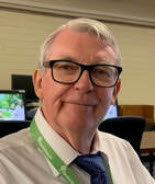
May 15, 2022: Guest speaker Richard Haynes will present "Eleven Tools to Help You Find Out More About Your Military Ancestors"
"Eleven Tools to Help You Find Out More About Your Military Ancestors"
You will learn how to use a variety of websites to find out more about your military ancestors. We'll look at Fold3, Ancestry, FamilySearch, JewishGen, the National Archives and more. Step-by-step instructions will help you can find information about your ancestors after the lecture is over! Typical documents that can be accessed include enlistment records, transport lists, military registers, and separation documents. And while we're at it, we may find more general genealogical documents in these websites, like birth, marriage, census and death records. It's possible to uncover descriptions of your military ancestor's unit, what they did and where they did it. The more places you search, the greater the likelihood you'll find something. We'll also weave in a case study of the highest-ranking Jewish general from WWII, Maurice Rose.
About Richard Haynes
Richard is a native Nevadan, born in Ely during World War II. He has had a life-long interest in military history and has been teaching Fold3 at the Las Vegas FamilySearch Library for years.
Richard has a BA in Economics from BYU and an MBA and an MA in U.S. History from UNLV.
Comments:
"Richard is a great military expert and historian. His lectures are always informative."
"I learned several new things. Yay!"
"Richard's style is engaging and the information conveyed was very useful."
"The lecture and case study were fascinating and the handout was very helpful!"
"Richard is such a credible speaker. I loved his stories."
"Even though the room was hot, that was a cool presentation. Thanks!
"Eleven Tools to Help You Find Out More About Your Military Ancestors"
You will learn how to use a variety of websites to find out more about your military ancestors. We'll look at Fold3, Ancestry, FamilySearch, JewishGen, the National Archives and more. Step-by-step instructions will help you can find information about your ancestors after the lecture is over! Typical documents that can be accessed include enlistment records, transport lists, military registers, and separation documents. And while we're at it, we may find more general genealogical documents in these websites, like birth, marriage, census and death records. It's possible to uncover descriptions of your military ancestor's unit, what they did and where they did it. The more places you search, the greater the likelihood you'll find something. We'll also weave in a case study of the highest-ranking Jewish general from WWII, Maurice Rose.
About Richard Haynes
Richard is a native Nevadan, born in Ely during World War II. He has had a life-long interest in military history and has been teaching Fold3 at the Las Vegas FamilySearch Library for years.
Richard has a BA in Economics from BYU and an MBA and an MA in U.S. History from UNLV.
Comments:
"Richard is a great military expert and historian. His lectures are always informative."
"I learned several new things. Yay!"
"Richard's style is engaging and the information conveyed was very useful."
"The lecture and case study were fascinating and the handout was very helpful!"
"Richard is such a credible speaker. I loved his stories."
"Even though the room was hot, that was a cool presentation. Thanks!
| researching_your_military_ancestors_final.pdf |
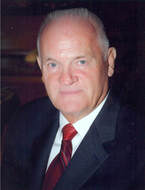
April 10, 2022: Guest speaker Wayne Stoker will present "Searching FamilySearch"
"Searching FamilySearch"
A walk through FamilySearch focusing on the site’s search capabilities. Recent updates in the search mechanisms will be covered. All of the FamilySearch microfilms have now been digitized. We will discuss how to work with digitized but NOT yet indexed films. We will cover how to use "Books" to find sources. We'll briefly introduce the “Catalog” and the "Wiki".
Bio of Wayne Stoker:
Wayne served as Director of the Las Vegas FamilySearch Library from 2011 through 2014 and continues to serve there as a consultant. He authored “Turning Nevada Hearts”, a history of the Library, and its predecessor entities in Las Vegas, and has published numerous Family Histories. Most of his professional career as a Partner in a National Accounting firm was in the New York/Philadelphia area. He and his family have resided in Las Vegas since 1987.
Comments:
"Wayne is an excellent speaker with an informative presentation."
"Thank you. That was very helpful."
"The FamilySearch site has changed so much. Today's lecture is going to help me find my way again."
"I'm looking forward to finding my family in the 1950 Census!"
"Searching FamilySearch"
A walk through FamilySearch focusing on the site’s search capabilities. Recent updates in the search mechanisms will be covered. All of the FamilySearch microfilms have now been digitized. We will discuss how to work with digitized but NOT yet indexed films. We will cover how to use "Books" to find sources. We'll briefly introduce the “Catalog” and the "Wiki".
Bio of Wayne Stoker:
Wayne served as Director of the Las Vegas FamilySearch Library from 2011 through 2014 and continues to serve there as a consultant. He authored “Turning Nevada Hearts”, a history of the Library, and its predecessor entities in Las Vegas, and has published numerous Family Histories. Most of his professional career as a Partner in a National Accounting firm was in the New York/Philadelphia area. He and his family have resided in Las Vegas since 1987.
Comments:
"Wayne is an excellent speaker with an informative presentation."
"Thank you. That was very helpful."
"The FamilySearch site has changed so much. Today's lecture is going to help me find my way again."
"I'm looking forward to finding my family in the 1950 Census!"
| familysearch_handout_-_wayne_stoker.pdf |

March 20, 2022: Guest speaker Lee Nishimoto will present "Golden Resources in FamilySearch: Wiki, Help Center, and Catalog"
"Golden Resources in FamilySearch: Wiki, Help Center and Catalog"
The Research Wiki is continually expanding reference source on localities and topics related to family history. Articles help researchers find and understand important records. This is a “Must Check” for thorough research. The Help Center is for technical “How to” do or fix issues in FamilySearch with step-by-step instructions. The Learning Center has over 900 amazing videos in several languages on genealogy around the world. The FamilySearch Catalog allows the researcher to locate the millions of digitized records that are indexed or unindexed from many countries. All these are free at FamilySearch .org to help advance family history.
Bio of Lee Nishimoto:
Lee is a professional genealogical researcher with more than 45 years of research and teaching experience. She received her B.S. degrees in Genealogical Research and Psychology from Brigham Young University. She has lived in many places in the U.S. and developed and taught courses at many colleges and universities. She has also lived in Europe and Asia. While her children were growing up she operated her own specialized research and publishing company. She helped create and hosted a genealogy TV program that was broadcast in the Washington, D.C.-Baltimore areas. She has published books and materials related to genealogy. She is a genealogy and history presenter for many genealogy societies, conferences, and seminars. She was the Director of the Las Vegas Nevada FamilySearch Library in Las Vegas with her husband (2016-2019). For the 2021 Roots Tech she was a Special Research Consultant for multiple countries. Lee is now teaching classes at the FamilySearch Library and is back to professional research.
Comments:
"I always learn something new from Lee, no matter how many times I've seen her."
"I learned several news things today - thank you!"
"I love listening to Lee."
"I had no idea that the FamilySearch wiki contained some much useful information. I can't wait to start using it."
"I'm so glad you emphasized the fact that the small question mark on the home page of FamilySearch revealed the Help Center and the variety of informative sections."
"Golden Resources in FamilySearch: Wiki, Help Center and Catalog"
The Research Wiki is continually expanding reference source on localities and topics related to family history. Articles help researchers find and understand important records. This is a “Must Check” for thorough research. The Help Center is for technical “How to” do or fix issues in FamilySearch with step-by-step instructions. The Learning Center has over 900 amazing videos in several languages on genealogy around the world. The FamilySearch Catalog allows the researcher to locate the millions of digitized records that are indexed or unindexed from many countries. All these are free at FamilySearch .org to help advance family history.
Bio of Lee Nishimoto:
Lee is a professional genealogical researcher with more than 45 years of research and teaching experience. She received her B.S. degrees in Genealogical Research and Psychology from Brigham Young University. She has lived in many places in the U.S. and developed and taught courses at many colleges and universities. She has also lived in Europe and Asia. While her children were growing up she operated her own specialized research and publishing company. She helped create and hosted a genealogy TV program that was broadcast in the Washington, D.C.-Baltimore areas. She has published books and materials related to genealogy. She is a genealogy and history presenter for many genealogy societies, conferences, and seminars. She was the Director of the Las Vegas Nevada FamilySearch Library in Las Vegas with her husband (2016-2019). For the 2021 Roots Tech she was a Special Research Consultant for multiple countries. Lee is now teaching classes at the FamilySearch Library and is back to professional research.
Comments:
"I always learn something new from Lee, no matter how many times I've seen her."
"I learned several news things today - thank you!"
"I love listening to Lee."
"I had no idea that the FamilySearch wiki contained some much useful information. I can't wait to start using it."
"I'm so glad you emphasized the fact that the small question mark on the home page of FamilySearch revealed the Help Center and the variety of informative sections."
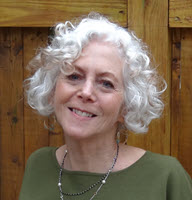
November 21, 2021: Guest speaker Nancy Levin
"Oceanic Journey to America - Traveling in Steerage Class"
Nancy discussed the experiences that passengers endured at all points of time - including actual reports from newspaper articles, interviews, etc. For those that arrived in the 1840s - the oceanic experiences were different than those that came in the 1870s, and different again, than those who arrived after the cholera epidemic in Hamburg and ensuing changes.
Bio of Nancy Levin:
International lecturer; author; and full-time professional genealogist specializing in Jewish genealogy. Licensed by the Board for Certification of Genealogists since 1997. Speaker at annual NGS and Jewish genealogy international conferences (IAJGS); New England Historic and Genealogical Society; Hebrew College; community centers; libraries; and other venues. Author of chapters on immigration and naturalization in the Avotaynu Guide to Jewish Genealogy. BA, U. of Vermont; MBA, Northeastern U.
Comments:
"What a wonderful presentation! Packed with information and inspiration to read more for ourselves. Thank you for doing your research and recommendations to us on these and more sources!"
"Thank you very, very much! Very impressive presentation of historic details"
"Nancy Levin has a phenomenal grasp of the detailed history of the trip across the ocean to America - especially the development of the laws governing the ships carrying immigrants.
"Interesting information and well prepared speaker"
"Oceanic Journey to America - Traveling in Steerage Class"
Nancy discussed the experiences that passengers endured at all points of time - including actual reports from newspaper articles, interviews, etc. For those that arrived in the 1840s - the oceanic experiences were different than those that came in the 1870s, and different again, than those who arrived after the cholera epidemic in Hamburg and ensuing changes.
Bio of Nancy Levin:
International lecturer; author; and full-time professional genealogist specializing in Jewish genealogy. Licensed by the Board for Certification of Genealogists since 1997. Speaker at annual NGS and Jewish genealogy international conferences (IAJGS); New England Historic and Genealogical Society; Hebrew College; community centers; libraries; and other venues. Author of chapters on immigration and naturalization in the Avotaynu Guide to Jewish Genealogy. BA, U. of Vermont; MBA, Northeastern U.
Comments:
"What a wonderful presentation! Packed with information and inspiration to read more for ourselves. Thank you for doing your research and recommendations to us on these and more sources!"
"Thank you very, very much! Very impressive presentation of historic details"
"Nancy Levin has a phenomenal grasp of the detailed history of the trip across the ocean to America - especially the development of the laws governing the ships carrying immigrants.
"Interesting information and well prepared speaker"
| nancy-levin-handout-oceanic_journey_to_america-2021-10-26.pdf |
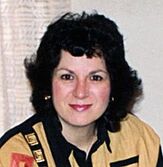
October 10, 2021: Guest speaker Miriam Weiner,
"Routes to Roots Foundation: New Surnames Databases, Maps, Town Images and More!"
From 30+ years of working in the archives of Eastern Europe (Poland, Ukraine, Moldova, Belarus, Lithuania), Miriam has acquired hundreds of various document collections yielding millions of surnames. She formed a close working relationship with archivists on all levels many of which continue to this day.
During the past two years, she has created a surname database containing over 2,000,000 names (with continuing updates regularly). At the website, a surname search can produce entries from Holocaust name lists, vital records, census lists, school records, property lists, various telephone and business directories, applications for Communist Party membership and much more, most of which do not appear elsewhere online. A surname search can produce document results with that surname and links to a street map and town images. All in a single search! A town name search can yield archive data for that town, as well as town images and a link to a street map of the town. Another valuable website resource is the Maps database. Miriam has acquired many maps from various localities. A map search will bring up very detailed maps that, when you zoom in, may reveal even the smallest shtetl.
Bio of Miriam Weiner:
In 1989, Miriam Weiner accepted an invitation from the Polish National Tourist Office to visit the Polish Archives in preparation for arranging genealogy tours to Poland. That visit led to a 30+ year career working in the archives of Poland, Ukraine, Moldova, Belarus and Lithuania.
In 1991, The Jewish Week in New York, referred to Miriam as “The Genealogist who Lifted the Archival Iron Curtain”.
In 1998, The Forward referred to her as “The Indiana Jones of Pre-war Polish Jewry.”
In 2019, The Jewish Exponent in Philadelphia referred to Miriam in a lecture review as "Genealogy Rock Star Discusses Digging up Jewish Roots."
Miriam's work in the genealogy field has produced a slew of awards beginning more than 30 years ago; among them are:
The new version of the RTRF website has produced many comments from noted members of the genealogical community, See www.rtrfoundation.org/comments2020.shtml
Comments:
"Thank you to Miriam Weiner for her courageous and innovative decades of work"
"A wonderful journey through Miriam's website. Well worth responding to the 3.15am alarm here in Australia!"
"This is totally incredible. Looking forward to doing research on this website."
"Amazing amount of information and clear instructions."
"Miriam is amazing! Very, very informative."
"Extraordinary amount of information, not to mention a remarkable trove of resources on the website."
"Enjoyed hearing about Miriam's website from Miriam herself."
"Wonderful! I've used Miriam's website before but I see that she's expanded it very greatly. A great overview of what's in it now and directions on how to use it. Very organized and very well illustrated."
"Miriam Weiner is an excellent communicator"
"It was so special to hear her describe the incredible records on her website. Thank you"
"Routes to Roots Foundation: New Surnames Databases, Maps, Town Images and More!"
From 30+ years of working in the archives of Eastern Europe (Poland, Ukraine, Moldova, Belarus, Lithuania), Miriam has acquired hundreds of various document collections yielding millions of surnames. She formed a close working relationship with archivists on all levels many of which continue to this day.
During the past two years, she has created a surname database containing over 2,000,000 names (with continuing updates regularly). At the website, a surname search can produce entries from Holocaust name lists, vital records, census lists, school records, property lists, various telephone and business directories, applications for Communist Party membership and much more, most of which do not appear elsewhere online. A surname search can produce document results with that surname and links to a street map and town images. All in a single search! A town name search can yield archive data for that town, as well as town images and a link to a street map of the town. Another valuable website resource is the Maps database. Miriam has acquired many maps from various localities. A map search will bring up very detailed maps that, when you zoom in, may reveal even the smallest shtetl.
Bio of Miriam Weiner:
In 1989, Miriam Weiner accepted an invitation from the Polish National Tourist Office to visit the Polish Archives in preparation for arranging genealogy tours to Poland. That visit led to a 30+ year career working in the archives of Poland, Ukraine, Moldova, Belarus and Lithuania.
In 1991, The Jewish Week in New York, referred to Miriam as “The Genealogist who Lifted the Archival Iron Curtain”.
In 1998, The Forward referred to her as “The Indiana Jones of Pre-war Polish Jewry.”
In 2019, The Jewish Exponent in Philadelphia referred to Miriam in a lecture review as "Genealogy Rock Star Discusses Digging up Jewish Roots."
Miriam's work in the genealogy field has produced a slew of awards beginning more than 30 years ago; among them are:
- In 1988, a writing award from the Council of Genealogy Columnists for her syndicated genealogy column
- In 1999, 2000, and 2003, three major awards from IAJGS (one for each of her two books and the Lifetime Achievement Award)
- In 2000, Reference Book of the Year award from the Association of Jewish Libraries
- In 2019, The National Genealogical Society presented Miriam with the prestigious "President's Citation" at its annual conference in St. Louis
- In 2020; The Federation of Genealogical Societies awarded her the Rabbi Malcolm H Stern Humanitarian Award
The new version of the RTRF website has produced many comments from noted members of the genealogical community, See www.rtrfoundation.org/comments2020.shtml
Comments:
"Thank you to Miriam Weiner for her courageous and innovative decades of work"
"A wonderful journey through Miriam's website. Well worth responding to the 3.15am alarm here in Australia!"
"This is totally incredible. Looking forward to doing research on this website."
"Amazing amount of information and clear instructions."
"Miriam is amazing! Very, very informative."
"Extraordinary amount of information, not to mention a remarkable trove of resources on the website."
"Enjoyed hearing about Miriam's website from Miriam herself."
"Wonderful! I've used Miriam's website before but I see that she's expanded it very greatly. A great overview of what's in it now and directions on how to use it. Very organized and very well illustrated."
"Miriam Weiner is an excellent communicator"
"It was so special to hear her describe the incredible records on her website. Thank you"
| miriam_weiner_handout_for_jgssn_-_4_pg.pdf |
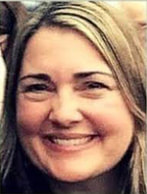
September 19, 2021: Guest speaker, Ellen Kowitt
"Comparison of Jewish Resources on the Giants: Ancestry, FamilySearch, Findmypast, JewishGen, & MyHeritage."
Enjoy this comparative overview of Jewish record collections and research tools on the global powerhouse websites referred to as "Genealogy Giants." This lecture has been updated to reflect the ever-changing content found online and many record examples will be shared. Learn about how each site can be especially helpful for documenting Jewish families and get tips on each site’s best features or challenges, including how JewishGen collections found on Ancestry.com differ from comparable collections originating on JewishGen.org, both in content and in the search experience.
Bio of Ellen Kowitt:
Ellen is Director of JewishGen’s United States Research Division and National Vice Chair of the DAR Lineage Committee Jewish Task Force. She is past president of JGS Colorado and JGS Greater Washington DC, has served on the IAJGS board of directors, and been recipient of IAJGS Program and Stern Awards. Ellen publishes articles in Avotaynu: The International Journal on Jewish Genealogy and Family Tree Magazine. Ellen is a member of the Colorado Chapter Association of Professional Genealogists, she accepts clients, and lectures often. Currently, Ellen is participating in the ProGen 46 study group cohort and was recipient of the UGA Jimmy B. Parker Scholarship for SLIG 2021. For the dates of upcoming lectures or more information, visit www.EllenKowitt.com.
Comments:
"Very organized and thorough. I've been researching for 6 years and have been using most of the Giants on a regular basis, but I learned an awful lot."
"Excellent in every way. To point and well presented"
"Perfect pace; very useable; clear, clear, clear"
"Excellent overview and succinct valuable information"
"Exactly what I was looking for"
"Ellen is an excellent presenter"
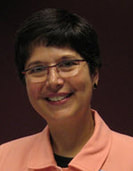
August 15, 2021: Guest speaker, Amy Wachs
""History and Geography - Tools for Eastern European Research"
Researching our Eastern European ancestry remains challenging in many countries, where missing records may lead to frustrating “brick walls”. This presentation will offer guidance for using the region’s historical events and geography to help fill in gaps and move past brick walls to determine place of ancestry, trace migration, and identify ancestors.
Bio of Amy Wachs:
Amy Wachs has been involved in Jewish genealogy for over 30 years. She is Past President of the Jewish Genealogy Society of Cleveland and served on the Board of LitvakSIG, Inc. from 2014 through 2020. Amy is a retired attorney and university instructor. She taught law in Latvia as a Fulbright Scholar and in Moldova as a Fulbright Senior Specialist. Amy often speaks about Eastern Europe and Jewish genealogy topics at conferences and to local audiences.
Comments:
"Amy presents a well-designed, focused, and useful presentation that I will definitely be able to apply to my own research."
"Very interesting webinar, it will definitely influence my research."
"Very clear and knowledgeable speaker and excellent slides."
"It provided new sources for my research-- US newspapers. railway maps, famines & wars"
"Clear, well-resourced and well-paced"
"All of your webinars are excellent. Thank you"
""History and Geography - Tools for Eastern European Research"
Researching our Eastern European ancestry remains challenging in many countries, where missing records may lead to frustrating “brick walls”. This presentation will offer guidance for using the region’s historical events and geography to help fill in gaps and move past brick walls to determine place of ancestry, trace migration, and identify ancestors.
Bio of Amy Wachs:
Amy Wachs has been involved in Jewish genealogy for over 30 years. She is Past President of the Jewish Genealogy Society of Cleveland and served on the Board of LitvakSIG, Inc. from 2014 through 2020. Amy is a retired attorney and university instructor. She taught law in Latvia as a Fulbright Scholar and in Moldova as a Fulbright Senior Specialist. Amy often speaks about Eastern Europe and Jewish genealogy topics at conferences and to local audiences.
Comments:
"Amy presents a well-designed, focused, and useful presentation that I will definitely be able to apply to my own research."
"Very interesting webinar, it will definitely influence my research."
"Very clear and knowledgeable speaker and excellent slides."
"It provided new sources for my research-- US newspapers. railway maps, famines & wars"
"Clear, well-resourced and well-paced"
"All of your webinars are excellent. Thank you"
| history_and_geography_helpful_eastern_europe_research_tools.pdf |
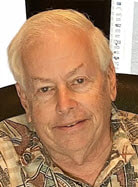
July 18, 2021: Guest speaker, Joel Weintraub
"Here Comes The 1950 U.S. Census! What To Expect."
The U.S. 1950 census will become public on April 1, 2022. Joel will prepare us for its debut by covering what is a census, who uses the census, census caveats, the 1940 census, how the 1950 census was taken, training of enumerators, enumerator instruction book, census sampling, 1950 schedule, 1950 Housing Schedule, census questions, post enumeration codes, 1950 undercount, and a summary of the results. Joel will conclude with a short discussion on his and Steve Morse’s 1950 census locational tools, online right now at the stevemorse.org website. Those 1950 utilities took 8 years to produce with the help of under 80 volunteers, involve 230,000 or so searchable 1950 ED definitions with about 80,000 more small community names added, and street indexes for over 2,400 1950 urban areas that correlate with 1950 census district numbers.
Bio of Joel Weintraub:
Joel Weintraub, PhD, a New Yorker by birth, is an emeritus Biology Professor at California State University, Fullerton. He became interested in genealogy over 20 years ago, and volunteered for 9 years at the National Archives and Records Administration in southern California. Joel has produced locational tools for the 1900 through 1950 federal censuses, and the New York State censuses for NYC (1905, 1915, 1925) for the Steve Morse "One-Step" website. Joel has published articles on the U.S. census and the 72-year rule, the name change belief at Ellis Island, finding difficult passenger records at Ellis Island, and searching census records (and the geography) of NYC.
Comments:
"Full of information I can take to my friends and fellow genealogists"
"Excellent introduction to the 1950 Census. Handout is extremely valuable"
" I really appreciated the speaker's engaging style and his description of the upcoming census"
"Thank you for the informative and engaging presentation"
"I learned a lot"
"Here Comes The 1950 U.S. Census! What To Expect."
The U.S. 1950 census will become public on April 1, 2022. Joel will prepare us for its debut by covering what is a census, who uses the census, census caveats, the 1940 census, how the 1950 census was taken, training of enumerators, enumerator instruction book, census sampling, 1950 schedule, 1950 Housing Schedule, census questions, post enumeration codes, 1950 undercount, and a summary of the results. Joel will conclude with a short discussion on his and Steve Morse’s 1950 census locational tools, online right now at the stevemorse.org website. Those 1950 utilities took 8 years to produce with the help of under 80 volunteers, involve 230,000 or so searchable 1950 ED definitions with about 80,000 more small community names added, and street indexes for over 2,400 1950 urban areas that correlate with 1950 census district numbers.
Bio of Joel Weintraub:
Joel Weintraub, PhD, a New Yorker by birth, is an emeritus Biology Professor at California State University, Fullerton. He became interested in genealogy over 20 years ago, and volunteered for 9 years at the National Archives and Records Administration in southern California. Joel has produced locational tools for the 1900 through 1950 federal censuses, and the New York State censuses for NYC (1905, 1915, 1925) for the Steve Morse "One-Step" website. Joel has published articles on the U.S. census and the 72-year rule, the name change belief at Ellis Island, finding difficult passenger records at Ellis Island, and searching census records (and the geography) of NYC.
Comments:
"Full of information I can take to my friends and fellow genealogists"
"Excellent introduction to the 1950 Census. Handout is extremely valuable"
" I really appreciated the speaker's engaging style and his description of the upcoming census"
"Thank you for the informative and engaging presentation"
"I learned a lot"
|
| ||||
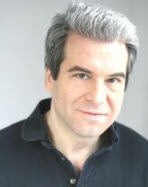
June 20, 2021: Guest speaker, Jordan Auslander
"Researching NYC Records Remotely"
As the cosmopolitan gateway to the United States, New York City continues to appeal to those who dream of a better life. Between 1820 and 1920 over 82 percent of immigrants to the United States came through the port of New York. Even if they migrated elsewhere, over 100,000,000 Americans have an ancestral paper trail that involves New York City (of them about 40 million have roots in Brooklyn). Learn how to trace your New York ancestors, whether they were passing through or called it home as well as resources to help you reconnect with family that remained elsewhere. While on-site research is the optimal approach to research, this is not always convenient or feasible.
Nevertheless, much can be accomplished in advance or in lieu of physical travel. Components of New York City family history can be identified without setting foot on Broadway using a broad array of free and subscription internet sites as well as some conventional sources. These resources will be evaluated in the context of the questions and needs of lecture participants.
Bio of Jordan Auslander:
Former transportation planner, now New York based genealogical researcher, lecturer and expert witness. Jordan has pursued cases across the United States, Europe and Israel; translated, created and published an index to vital records in the Slovak State Archive system, Genealogical Gazetteer of the Kingdom of Hungary. (and articles including the history and documentation of US participants in WWI),
His history BA first applied in title search, real estate and background contracted for various literary projects; Jordan got into genealogy, like everyone else -- too late. Interest in family history grew while stuck with sorting through bales of material his paternal grandmother accumulated. He joined the Jewish Genealogical Society in 1988 serving on its board 1994-96; member of the Association of Professional Genealogists and The New York Genealogical & Biographical Society.
Applied his theatrical writing and acting pretensions as “Heir Jordan, Extreme Genealogist” Telly award winner for RootsTelevision.com and the ‘reliably inappropriate’ host of IAJGS conference Gameshow Night.
Comments:
"Very informative. Jordan is obviously extremely knowledgeable"
"Very good overview & compilation. Introduced to some new resources!"
"It was wonderful, very well done."
"Lots of juicy sources that I'd only vaguely or never heard about - and I live in NYC and have been researching for 5 years. Thank you so much!"
"I enjoyed Jordan's presentation a lot!'
"Packed with information"
| nyc_remotely_notes_2019.pdf |
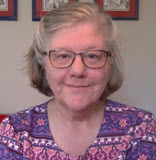
May 16, 2021: Guest speaker, Marian Smith
"The What and When of US Immigration and Naturalization Records"
Marian Smith will present an overview of three historical eras (1820-Present) of US immigration and naturalization records illustrated with documents of Jewish immigrants. Using a timeline tool (included in the handout), she will demonstrate how plotting an immigrant’s life events can identify what records may exist for that particular immigrant, and where to find them. A question and answer session follows the presentation.
Bio of Marian Smith:
Marian Smith retired in 2018 after thirty years as an Historian for the Immigration and Naturalization Service (INS), later US Citizenship and Immigration Services (USCIS). She now speaks to groups on US immigration and nationality records and leads the I&N Records Fortnightly study group.
Comments:
"Very informative and I learned new research options"
"Lots of good information. Speaker obviously knows her subject well!"
"She knows so much...a gem"
"Complex topic presented clearly, with practical suggestions"
"It was super informative"
"The What and When of US Immigration and Naturalization Records"
Marian Smith will present an overview of three historical eras (1820-Present) of US immigration and naturalization records illustrated with documents of Jewish immigrants. Using a timeline tool (included in the handout), she will demonstrate how plotting an immigrant’s life events can identify what records may exist for that particular immigrant, and where to find them. A question and answer session follows the presentation.
Bio of Marian Smith:
Marian Smith retired in 2018 after thirty years as an Historian for the Immigration and Naturalization Service (INS), later US Citizenship and Immigration Services (USCIS). She now speaks to groups on US immigration and nationality records and leads the I&N Records Fortnightly study group.
Comments:
"Very informative and I learned new research options"
"Lots of good information. Speaker obviously knows her subject well!"
"She knows so much...a gem"
"Complex topic presented clearly, with practical suggestions"
"It was super informative"
| 2021_may_16_smith_handout_jgssn.pdf |
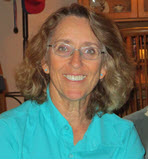
April 18, 2021: Guest speaker, Emily Garber
“Town Counsel: Finding Your Ancestor's European Town of Origin”
One of the most important building blocks of Jewish genealogy research is determining our ancestors’ communities of origin, especially where those places are on today’s maps. Discovering an ancestor’s town of origin (either birthplace or last residence) may be one of our most exciting research findings because it could be the portal to allow us to push our family tree back several generations.
Because records were (and are) often kept at local, municipal level or regional levels, successful genealogical research depends upon knowing our ancestors’ correct communities of residence. One cannot successfully jump the pond to Eastern Europe with one’s research until one has established location information from immigrant ancestors’ and relatives’ records in their adopted countries.
Bio of Emily Garber:
An archaeologist by training (B.A., Vassar College; M.A., University of New Mexico), Emily Garber is a professional genealogy researcher, writer and speaker who specializes in Jewish genealogical research. She has researched both Eastern European and German Jewish communities and immigrants to the United States and Great Britain. She has toured family shtetlach (communities) and explored archives in Ukraine.
After retiring from her 30+ year career in natural resources management, Emily earned a certificate from Boston University's Genealogical Research program. She has spoken at eight International Association of Jewish Genealogical Societies conferences and at the National Genealogical Society’s virtual conference. She has presented talks and seminars throughout the United States, and in Israel and Poland. In the summer of 2020, she coordinated the week-long seminar at the Genealogical Research Institute of Pittsburgh, “Introduction to Jewish Genealogy.” She has authored three articles published in Avotaynu: The International Review of Jewish Genealogy and, for a client, completed two privately published volumes chronicling the 300-year history of a German Jewish family. She writes a family history blog, The Extra Yad (https://extrayad.blogspot.com/).
Emily serves on the board of the International Association of Jewish Genealogical Societies. She is also Chair of the Phoenix Jewish Genealogy Group and is on the boards of the Arizona Jewish Historical Society as well as JewishGen’s Ukraine and Romania Research Groups. She was one of the moderators of the JewishGen Discussion Group for about 10 years.
Comments:
"Excellent presentation, Emily. Organized, thorough, and a demonstration of the success one can achieve with persistence and open-minded research. Thank you!"
"Well organized presentation with visuals. Gave me insights in how to thoroughly research."
"Thank you for a brilliant lesson in persistence and an orderly approach to finding ancestral towns. I am sure that many of us will be re-energised in our searches."
"Very organized, super handout loaded with information"
"I’d like to hire her!"
"One of the best webinars on Jewish genealogy I've ever seen. I'd been looking for information on this subject for a long time and Emily's lecture and handout will be extremely helpful to me. I especially liked that it was very easy to understand and well organized. Kudos to her and to the JGSSN!"
“Town Counsel: Finding Your Ancestor's European Town of Origin”
One of the most important building blocks of Jewish genealogy research is determining our ancestors’ communities of origin, especially where those places are on today’s maps. Discovering an ancestor’s town of origin (either birthplace or last residence) may be one of our most exciting research findings because it could be the portal to allow us to push our family tree back several generations.
Because records were (and are) often kept at local, municipal level or regional levels, successful genealogical research depends upon knowing our ancestors’ correct communities of residence. One cannot successfully jump the pond to Eastern Europe with one’s research until one has established location information from immigrant ancestors’ and relatives’ records in their adopted countries.
Bio of Emily Garber:
An archaeologist by training (B.A., Vassar College; M.A., University of New Mexico), Emily Garber is a professional genealogy researcher, writer and speaker who specializes in Jewish genealogical research. She has researched both Eastern European and German Jewish communities and immigrants to the United States and Great Britain. She has toured family shtetlach (communities) and explored archives in Ukraine.
After retiring from her 30+ year career in natural resources management, Emily earned a certificate from Boston University's Genealogical Research program. She has spoken at eight International Association of Jewish Genealogical Societies conferences and at the National Genealogical Society’s virtual conference. She has presented talks and seminars throughout the United States, and in Israel and Poland. In the summer of 2020, she coordinated the week-long seminar at the Genealogical Research Institute of Pittsburgh, “Introduction to Jewish Genealogy.” She has authored three articles published in Avotaynu: The International Review of Jewish Genealogy and, for a client, completed two privately published volumes chronicling the 300-year history of a German Jewish family. She writes a family history blog, The Extra Yad (https://extrayad.blogspot.com/).
Emily serves on the board of the International Association of Jewish Genealogical Societies. She is also Chair of the Phoenix Jewish Genealogy Group and is on the boards of the Arizona Jewish Historical Society as well as JewishGen’s Ukraine and Romania Research Groups. She was one of the moderators of the JewishGen Discussion Group for about 10 years.
Comments:
"Excellent presentation, Emily. Organized, thorough, and a demonstration of the success one can achieve with persistence and open-minded research. Thank you!"
"Well organized presentation with visuals. Gave me insights in how to thoroughly research."
"Thank you for a brilliant lesson in persistence and an orderly approach to finding ancestral towns. I am sure that many of us will be re-energised in our searches."
"Very organized, super handout loaded with information"
"I’d like to hire her!"
"One of the best webinars on Jewish genealogy I've ever seen. I'd been looking for information on this subject for a long time and Emily's lecture and handout will be extremely helpful to me. I especially liked that it was very easy to understand and well organized. Kudos to her and to the JGSSN!"
| garbereh_towncounsel-handout_20210410.pdf |
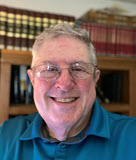
March 21, 2021: Guest speaker, Hal Bookbinder
"Why Did Our Jewish Ancestors Leave a Great Place Like the Pale?"
Jews had lived in Western Russia (the Pale) for centuries. At the turn of the last, two million left. This talk discusses how the Pale came to be, life in it and why the mass migration occurred. It breaks its 120-year history into periods of creation, confinement, repression, enlightenment, pogroms and chaos. There is more to the story than the horrific violence at the turn of the 20th century.
Bio of Hal Bookbinder:
Hal writes and lectures extensively on diverse genealogical topics, including border changes, migration, citizenship and practicing safe computing. He has identified over 4,000 relatives, tracing two lines to the mid-1700s in modern Ukraine. He has served as president of the IAJGS and has been honored with its Lifetime Achievement Award. Hal is a retired information technology director who continues to teach at the university level. He also directs a transition-to-work training program for individuals in addiction recovery. Hal and his family reside in the Los Angeles area. Check out his articles on safe computing at http://www.tinyurl.com/SafeComputingArticles.
Comments:
"Fantastic talk and wonderful Q&A! Thank you!!!"
"A wonderfully detailed explanation - thank you!"
"Wow wow wow"
"The best I have attended ever. So interesting and relevant""
"Extremely informative, clear, concise, well prepared, excellent display of material"
"Mr. Bookbinder was very informative and clear about the origins and historical development of the Pale. A complicated subject, to say the least. Thank you very much. I also learned a lot from the Q&A after the presentation."
"Why Did Our Jewish Ancestors Leave a Great Place Like the Pale?"
Jews had lived in Western Russia (the Pale) for centuries. At the turn of the last, two million left. This talk discusses how the Pale came to be, life in it and why the mass migration occurred. It breaks its 120-year history into periods of creation, confinement, repression, enlightenment, pogroms and chaos. There is more to the story than the horrific violence at the turn of the 20th century.
Bio of Hal Bookbinder:
Hal writes and lectures extensively on diverse genealogical topics, including border changes, migration, citizenship and practicing safe computing. He has identified over 4,000 relatives, tracing two lines to the mid-1700s in modern Ukraine. He has served as president of the IAJGS and has been honored with its Lifetime Achievement Award. Hal is a retired information technology director who continues to teach at the university level. He also directs a transition-to-work training program for individuals in addiction recovery. Hal and his family reside in the Los Angeles area. Check out his articles on safe computing at http://www.tinyurl.com/SafeComputingArticles.
Comments:
"Fantastic talk and wonderful Q&A! Thank you!!!"
"A wonderfully detailed explanation - thank you!"
"Wow wow wow"
"The best I have attended ever. So interesting and relevant""
"Extremely informative, clear, concise, well prepared, excellent display of material"
"Mr. Bookbinder was very informative and clear about the origins and historical development of the Pale. A complicated subject, to say the least. Thank you very much. I also learned a lot from the Q&A after the presentation."
| pale_handout_-_2020.pdf |
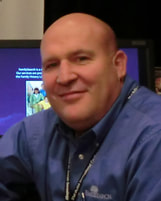
February 21, 2021: Guest speaker, Todd Knowles
"What's New at FamilySearch"
FamilySearch is one of the largest genealogical websites and grows more every day. This presentation will show some of the newest features of FamilySearch and how best to utilize them to find your Jewish ancestors.
Bio of Todd Knowles:
W. Todd Knowles is an accredited Genealogist who specializes in English and Jewish research. For the past 20 years he has been a member of the staff at the Family History Library in Salt Lake City, where he currently serves as a Deputy Chief Genealogical Officer. He is past President of the Utah Jewish Genealogy Society (UJGS).
Todd has lectured all over the world and his articles have been widely published. His own genealogical search began at the age of twelve with the desire to find more about his family and grows every day. His quest to find more about his GGGrandfather, a Polish Jew, has led to the creation of the Knowles Collection, six databases that contain the records of the Jewish people. It currently (as of Jan 2020) contains the records of over 1.4 million people.
Comments:
"Amazing amount of information"
"Excellent speaker; clear and concise"
"Excellent webinar. Lots about FamilySearch that I didn't know before, but will use now!"
"Very detailed and informative"
"Todd is so knowledgeable and I learn something new every time I hear him speak"
"Great insights to help with my research"
"What's New at FamilySearch"
FamilySearch is one of the largest genealogical websites and grows more every day. This presentation will show some of the newest features of FamilySearch and how best to utilize them to find your Jewish ancestors.
Bio of Todd Knowles:
W. Todd Knowles is an accredited Genealogist who specializes in English and Jewish research. For the past 20 years he has been a member of the staff at the Family History Library in Salt Lake City, where he currently serves as a Deputy Chief Genealogical Officer. He is past President of the Utah Jewish Genealogy Society (UJGS).
Todd has lectured all over the world and his articles have been widely published. His own genealogical search began at the age of twelve with the desire to find more about his family and grows every day. His quest to find more about his GGGrandfather, a Polish Jew, has led to the creation of the Knowles Collection, six databases that contain the records of the Jewish people. It currently (as of Jan 2020) contains the records of over 1.4 million people.
Comments:
"Amazing amount of information"
"Excellent speaker; clear and concise"
"Excellent webinar. Lots about FamilySearch that I didn't know before, but will use now!"
"Very detailed and informative"
"Todd is so knowledgeable and I learn something new every time I hear him speak"
"Great insights to help with my research"

January 17, 2021: Guest speaker, Daniel Horowitz
" Location, Location, Location: Where Your Relatives Were"
You know what they say: location is everything. Maps, addresses, and places are some of the key points of genealogy research. Analyzing your facts and recognizing when the places you’ve recorded were misspelled, incomplete, or totally wrong can give your research a huge boost — paving the way for you to discover how, where, and why your ancestors lived and worked where they did. By using the correct tools and websites, you’ll find new clues and gain extraordinary insights... but only if you follow the right path. In this lecture, Daniel will show you the way.
Bio of Daniel Horowitz:
Daniel is the Expert Genealogist from MyHeritage. He speaks at genealogy conferences around the world. He has been dedicated to genealogy since 1986. He was the teacher and the study guide editor of the family history project “Searching for My Roots” in Venezuela for 15 years. Daniel is involved in several crowdsource digitization and transcription projects and holds a board level position at the Israel Genealogy Research Association (IGRA)
Comments:
"Excellent webinar. I have taken other webinars from JGSSN. They too were excellent."
"Very good resources. Daniel is, as always, on point."
"Lots of new information which will be useful in my genealogical research. Especially happy to know about using certain features of Google maps to find historical pictures. I look forward to trying out the various links on the handout. Thank you for this excellent presentation!"
"A wonderful presentation - and opens many new possibilities for research"
"Magnificent"
" Location, Location, Location: Where Your Relatives Were"
You know what they say: location is everything. Maps, addresses, and places are some of the key points of genealogy research. Analyzing your facts and recognizing when the places you’ve recorded were misspelled, incomplete, or totally wrong can give your research a huge boost — paving the way for you to discover how, where, and why your ancestors lived and worked where they did. By using the correct tools and websites, you’ll find new clues and gain extraordinary insights... but only if you follow the right path. In this lecture, Daniel will show you the way.
Bio of Daniel Horowitz:
Daniel is the Expert Genealogist from MyHeritage. He speaks at genealogy conferences around the world. He has been dedicated to genealogy since 1986. He was the teacher and the study guide editor of the family history project “Searching for My Roots” in Venezuela for 15 years. Daniel is involved in several crowdsource digitization and transcription projects and holds a board level position at the Israel Genealogy Research Association (IGRA)
Comments:
"Excellent webinar. I have taken other webinars from JGSSN. They too were excellent."
"Very good resources. Daniel is, as always, on point."
"Lots of new information which will be useful in my genealogical research. Especially happy to know about using certain features of Google maps to find historical pictures. I look forward to trying out the various links on the handout. Thank you for this excellent presentation!"
"A wonderful presentation - and opens many new possibilities for research"
"Magnificent"
| location_location_locations.pdf |
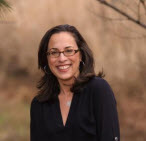
December 13, 2020: Guest speaker, Jennifer Mendelsohn
"Think Like a Reporter To Avoid Genealogy Mistakes"
This talk will cover how more than two decades of journalism experience has helped me as a genealogist, both to zero in on reliable information and not to be duped by unreliable information. We’ll talk about using the “Law and Order” method (follow the “dun duns!”) to track down information and how relying on simple principles like Occam’s Razor – that the most likely scenario is the least complicated – and logic grids can help you get further. We’ll go over pitfalls like not blindly using Ancestry hints, assessing the credibility of sources, not being wedded to spelling, (hello, wildcard searches!) and why genealogy is like playing Concentration: you always have to remember the cards you’ve seen and turned over.
Bio of Jennifer Mendelsohn:
Jennifer Mendelsohn is a seasoned journalist and ghostwriter whose work has appeared in numerous local and national publications including The New York Times, The Washington Post, Time, People, Slate, and USA Today.
A native Long Islander now based in Baltimore, Mendelsohn serves on the board of the Jewish Genealogy Society of Maryland and is the administrator of Facebook’s Jewish genetic genealogy group. A member of the Association of Professional Genealogists, she is the creator of the movement known as #resistancegenealogy, a project that uses genealogical and historical records to fight disinformation and honor America’s immigrant past. Her work has received international media attention, including being featured on CNN.com, The New Yorker, and The Washington Post.
Comments:
"Exceptionally professional"
"Jennifer is wonderful - very helpful info."
"Jennifer's presentation was great -- informative, efficient, and it got me thinking about how I can approach some walls. I also appreciated how well organized the webinar info was, including the registration email and call management."
"Jennifer was very thorough (as you'd expect from a reporter), stories were engaging and well-presented".
"She was so well-prepared. I am a seasoned researcher and found many new ideas."
"Think Like a Reporter To Avoid Genealogy Mistakes"
This talk will cover how more than two decades of journalism experience has helped me as a genealogist, both to zero in on reliable information and not to be duped by unreliable information. We’ll talk about using the “Law and Order” method (follow the “dun duns!”) to track down information and how relying on simple principles like Occam’s Razor – that the most likely scenario is the least complicated – and logic grids can help you get further. We’ll go over pitfalls like not blindly using Ancestry hints, assessing the credibility of sources, not being wedded to spelling, (hello, wildcard searches!) and why genealogy is like playing Concentration: you always have to remember the cards you’ve seen and turned over.
Bio of Jennifer Mendelsohn:
Jennifer Mendelsohn is a seasoned journalist and ghostwriter whose work has appeared in numerous local and national publications including The New York Times, The Washington Post, Time, People, Slate, and USA Today.
A native Long Islander now based in Baltimore, Mendelsohn serves on the board of the Jewish Genealogy Society of Maryland and is the administrator of Facebook’s Jewish genetic genealogy group. A member of the Association of Professional Genealogists, she is the creator of the movement known as #resistancegenealogy, a project that uses genealogical and historical records to fight disinformation and honor America’s immigrant past. Her work has received international media attention, including being featured on CNN.com, The New Yorker, and The Washington Post.
Comments:
"Exceptionally professional"
"Jennifer is wonderful - very helpful info."
"Jennifer's presentation was great -- informative, efficient, and it got me thinking about how I can approach some walls. I also appreciated how well organized the webinar info was, including the registration email and call management."
"Jennifer was very thorough (as you'd expect from a reporter), stories were engaging and well-presented".
"She was so well-prepared. I am a seasoned researcher and found many new ideas."
| think_like_a_reporter_handout__jgssn.pdf |
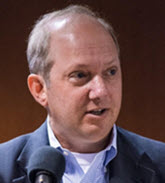
November 8, 2020: Guest speaker, E. Randol Schoenberg
"Woman in Gold"
The remarkable true story of one woman’s journey to reclaim her heritage and seek justice for what happened to her family. Sixty years after she fled Vienna during World War II, an elderly Jewish woman, Maria Altmann, starts her journey to retrieve family possessions seized by the Nazis, among them Klimt’s famous painting Portrait of Adele Bloch-Bauer. Together with her inexperienced but plucky young lawyer Randy Schoenberg, she embarks upon a major battle which takes them all the way to the heart of the Austrian establishment and the U.S. Supreme Court, and forces her to confront difficult truths about the past along the way.
Bio of E. Randol Schoenberg:
E. Randol Schoenberg is an American lawyer specializing in complex litigation matters, and notably in cases involving looted art and the recovery of property stolen by the Nazi authorities during the Holocaust. He won the return of five famous Klimt paintings for his client, Maria Altmann. In 2007, Mr. Schoenberg received the California Lawyer Attorney of the Year award for outstanding achievement in the field of litigation. He also received the 2006 Jurisprudence Award from the Anti-Defamation League and the Justice Louis D. Brandeis Award from the American Jewish Congress.
Mr. Schoenberg served as President of Los Angeles Museum of the Holocaust from 2005-2015, during which time the museum constructed its new building in Pan Pacific Park. Mr. Schoenberg led the redesign of the permanent exhibit for the new museum. In 2013, he served as acting executive director while the Museum conducted a search for its new executive director.
He serves on the board of JewishGen, and the L.A. Jewish Symphony. He has been an avid genealogist since he was 8 years old, maintains a huge family tree both on JewishGen and Geni, and is the Co-Founder, Coordinator and Moderator for the JewishGen Austria-Czech Special Interest Group. He is the author of the Beginner's Guide to Austrian-Jewish Genealogy and the co-author of Getting Started with Czech-Jewish Genealogy.
Comments:
"This was an extraordinary presentation; clear, precise"
"Such a personal story. Well told and so valuable."
"Excellent presentation and presenter! Great to hear the additional stories and details (e.g. Justice Souter)."
"Extremely interesting and informative"
"Woman in Gold"
The remarkable true story of one woman’s journey to reclaim her heritage and seek justice for what happened to her family. Sixty years after she fled Vienna during World War II, an elderly Jewish woman, Maria Altmann, starts her journey to retrieve family possessions seized by the Nazis, among them Klimt’s famous painting Portrait of Adele Bloch-Bauer. Together with her inexperienced but plucky young lawyer Randy Schoenberg, she embarks upon a major battle which takes them all the way to the heart of the Austrian establishment and the U.S. Supreme Court, and forces her to confront difficult truths about the past along the way.
Bio of E. Randol Schoenberg:
E. Randol Schoenberg is an American lawyer specializing in complex litigation matters, and notably in cases involving looted art and the recovery of property stolen by the Nazi authorities during the Holocaust. He won the return of five famous Klimt paintings for his client, Maria Altmann. In 2007, Mr. Schoenberg received the California Lawyer Attorney of the Year award for outstanding achievement in the field of litigation. He also received the 2006 Jurisprudence Award from the Anti-Defamation League and the Justice Louis D. Brandeis Award from the American Jewish Congress.
Mr. Schoenberg served as President of Los Angeles Museum of the Holocaust from 2005-2015, during which time the museum constructed its new building in Pan Pacific Park. Mr. Schoenberg led the redesign of the permanent exhibit for the new museum. In 2013, he served as acting executive director while the Museum conducted a search for its new executive director.
He serves on the board of JewishGen, and the L.A. Jewish Symphony. He has been an avid genealogist since he was 8 years old, maintains a huge family tree both on JewishGen and Geni, and is the Co-Founder, Coordinator and Moderator for the JewishGen Austria-Czech Special Interest Group. He is the author of the Beginner's Guide to Austrian-Jewish Genealogy and the co-author of Getting Started with Czech-Jewish Genealogy.
Comments:
"This was an extraordinary presentation; clear, precise"
"Such a personal story. Well told and so valuable."
"Excellent presentation and presenter! Great to hear the additional stories and details (e.g. Justice Souter)."
"Extremely interesting and informative"
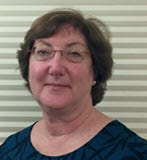
October 18, 2020: Guest speaker, Robinn Magid
Finding your Eastern European Jewish Family on JRI-Poland.org"
Join us for a presentation of some truly memorable stories from the JRI-Poland.org case file that highlight what this incredible database and website might do for your own research. For 25 years, JRI-Poland has served as the preferred finding aid for the Jewish records that survive in the archives of Poland today. This vast collection of 6.2 million records from over 550 towns includes information about towns and families from Poland, Ukraine, Belarus, Lithuania, Germany and the former territories of Galicia and Prussia. Through understanding the contents of the database and how to improve your search results to exploring preserved Holocaust-related records, this lecture will focus on the good things that can come out of a genealogical search. Come listen to stories of the people we’ve helped in the hope that you’ll get a useful new idea from our more surprising experiences.
Bio of Robinn Magid:
Robinn Magid is the Assistant Director of JRI-Poland.org and a recent recipient of the IAJGS Lifetime Achievement Award. She recently became the project manager of the JRI-Poland “NextGen Project” to redesign the JRI-Poland website, search engine and database. She a frequent speaker and writer on Jewish genealogy topics.
As the Lublin Area Projects Coordinator, she is responsible for coordinating the indexing of Jewish vital records for approximately 100 towns. Robinn’s genealogical work resulted in her being recognized by the City of Lublin, Poland – her grandmother’s hometown – with a medal from the mayor for inspiring the future and cultural identity of that city of 450,000 people on Lublin’s 700th birthday in 2017. Robinn has spoken at many IAJGS conferences on behalf of JRI-Poland and has served as the chair of two groundbreaking conferences: IAJGS 2018 Warsaw, Poland conference, and the IAJGS 2020 Virtual Conference on Jewish Genealogy. She is a member of the San Francisco - Bay Area JGS and has spoken to her group and to other societies. Robinn is sheltering-at-home in Berkeley, California with her husband, four children and new daughter-in-law!
Comments:
"Robinn presented a huge amount of information in a short time, and it was done professionally, clearly, and of use to us as researchers. Thanks."
"Not sure how I found JGSSN but am happy I did. As a new long distance member, I look forward to other virtual sessions."
"Thank you, this was excellent"!
Finding your Eastern European Jewish Family on JRI-Poland.org"
Join us for a presentation of some truly memorable stories from the JRI-Poland.org case file that highlight what this incredible database and website might do for your own research. For 25 years, JRI-Poland has served as the preferred finding aid for the Jewish records that survive in the archives of Poland today. This vast collection of 6.2 million records from over 550 towns includes information about towns and families from Poland, Ukraine, Belarus, Lithuania, Germany and the former territories of Galicia and Prussia. Through understanding the contents of the database and how to improve your search results to exploring preserved Holocaust-related records, this lecture will focus on the good things that can come out of a genealogical search. Come listen to stories of the people we’ve helped in the hope that you’ll get a useful new idea from our more surprising experiences.
Bio of Robinn Magid:
Robinn Magid is the Assistant Director of JRI-Poland.org and a recent recipient of the IAJGS Lifetime Achievement Award. She recently became the project manager of the JRI-Poland “NextGen Project” to redesign the JRI-Poland website, search engine and database. She a frequent speaker and writer on Jewish genealogy topics.
As the Lublin Area Projects Coordinator, she is responsible for coordinating the indexing of Jewish vital records for approximately 100 towns. Robinn’s genealogical work resulted in her being recognized by the City of Lublin, Poland – her grandmother’s hometown – with a medal from the mayor for inspiring the future and cultural identity of that city of 450,000 people on Lublin’s 700th birthday in 2017. Robinn has spoken at many IAJGS conferences on behalf of JRI-Poland and has served as the chair of two groundbreaking conferences: IAJGS 2018 Warsaw, Poland conference, and the IAJGS 2020 Virtual Conference on Jewish Genealogy. She is a member of the San Francisco - Bay Area JGS and has spoken to her group and to other societies. Robinn is sheltering-at-home in Berkeley, California with her husband, four children and new daughter-in-law!
Comments:
"Robinn presented a huge amount of information in a short time, and it was done professionally, clearly, and of use to us as researchers. Thanks."
"Not sure how I found JGSSN but am happy I did. As a new long distance member, I look forward to other virtual sessions."
"Thank you, this was excellent"!
| jri-poland_eastern_european_family_handout_10.18.2020.pdf |
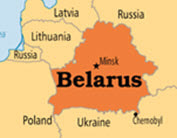
September 13, 2020: Guest speaker, Yuri Dorn
"Jewish History & Research Strategy in Belarus ("White Russia") Archives"
Yuri Dorn will present a brief history of Jewish Belarus (often referred to as White Russia), followed by a description of the records available for research in Belorussian archives. He will explain which records you can expect to find and will suggest the best strategy for approaching one’s research. Remember that your Lithuanian, Ukrainian, Polish, etc. ancestors may have migrated from Belarus to these other areas. Or vice versa.
About Yuri Dorn
Yuri Dorn is a well-known genealogist, specializing in Jewish genealogy and ancestral tourism to Belarus. He founded Jewish Heritage Research Group in Belarus in 2002, which consists of professional historians, genealogists and certified English-speaking guides. Yuri and his staff are not only working in Belorussian archives and arranging ancestral tours to Belarus, but they also put a lot of effort into restoration and preservation of Jewish heritage in Belarus.
Belarus Ancestral Jewish Trips
If you are interested in Yuri and Irina Dorn's guided tours of Belarus, join their Facebook group at: https://www.facebook.com/groups/570680247004318/
Comments
"Thank you for the very useful programme today on Belarus. The information I gathered will be very useful."
Handout:
"Jewish History & Research Strategy in Belarus ("White Russia") Archives"
Yuri Dorn will present a brief history of Jewish Belarus (often referred to as White Russia), followed by a description of the records available for research in Belorussian archives. He will explain which records you can expect to find and will suggest the best strategy for approaching one’s research. Remember that your Lithuanian, Ukrainian, Polish, etc. ancestors may have migrated from Belarus to these other areas. Or vice versa.
About Yuri Dorn
Yuri Dorn is a well-known genealogist, specializing in Jewish genealogy and ancestral tourism to Belarus. He founded Jewish Heritage Research Group in Belarus in 2002, which consists of professional historians, genealogists and certified English-speaking guides. Yuri and his staff are not only working in Belorussian archives and arranging ancestral tours to Belarus, but they also put a lot of effort into restoration and preservation of Jewish heritage in Belarus.
Belarus Ancestral Jewish Trips
If you are interested in Yuri and Irina Dorn's guided tours of Belarus, join their Facebook group at: https://www.facebook.com/groups/570680247004318/
Comments
"Thank you for the very useful programme today on Belarus. The information I gathered will be very useful."
Handout:
| yuri_dorn_belarus_presentation_handout.pdf |
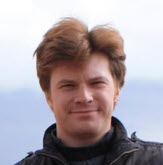
August 16, 2020: Guest speaker, Alex Krakovsky
"Jewish Documents Kept by Ukrainian Archives"
Alex Krakovsky is a Jewish Ukrainian born in Kyiv. He is using the Freedom of Information laws and the court system in Ukraine to force archives to allow him to scan records. Alex became interested in learning about his roots after his mother’s death in 2011. He found references to his grandfather, whom the family knew almost nothing about in a book and some documents at the archive in Zhytomyr. He was asked to pay 116,000 hryvnia (about $4,600) for copies of the documents! He refused and continued to refuse until the archives decreased the fee to $2, which he paid. Alex later sued the archive, winning back his $2 plus an additional 100 hryvnia ($4) for the hassle the archive put him through.
The case also changed Alex's life. With no formal legal training, he has become a litigation machine—a hero of sorts to frustrated researchers and genealogists. Alex has sued more than a dozen archives with the goal of bringing Ukraine’s archives up to European standards. Among other things, he advocates for the publishing of inventories online so that people know what is in the archives. This would also help prevent the illegal sale of archival materials, which he suspects is ongoing. He also agitates for the right to freely photograph documents.
Alex has not lost a single case to date. He often wins, citing constitutional precedent. Recently, he faced his most powerful adversary. Alex filed suit against Ukraine’s Ministry of Justice. The Ministry has the state archives under its wing and issued a June 2018 order barring the copying of documents larger than letter-size, files thicker than 1 ½ inches, old printed books, listings of documents, and basically anything a researcher or genealogist might need to see.
About Alex Krakovsky
Alex was born at a very young age in 1982 in Kyiv. He graduated from the Kyiv Polytechnic Institute in 2005 with a degree in Flexible Computer Systems. He has been actively doing genealogy since 2011.
Alex has been digitizing records in Ukrainian Archives, including Jewish metrical books and other vital records, school records, revision lists, poll tax censuses, and more.
He then posts the records online to a wiki page which yields a massive amount of raw data for those interested in Ukrainian research. Alex uses high resolution scanning equipment to scan virtually all records in an archive. He has spent a great deal of time and his own money doing this important work and he is constantly battling a very difficult government system. Alex has received donations for the purchase of state-of-the-art scanners, which are now in use in most Ukraine archives.
You can access his main wiki page at this URL (use the Google Chrome browser to view the JGSSN site and Alex's link (as it can translate this Ukrainian Wikipedia page).
Comments
"It was a highly enriching meeting"
"Alex runs an amazing project. His success in getting various Ukrainian archives to allow him to scan and digitize their records will benefit those of us with Ukrainian roots."
"His Wikipedia page is a tremendous wealth of information for many, many shtetls in the Ukraine."
"Jewish Documents Kept by Ukrainian Archives"
Alex Krakovsky is a Jewish Ukrainian born in Kyiv. He is using the Freedom of Information laws and the court system in Ukraine to force archives to allow him to scan records. Alex became interested in learning about his roots after his mother’s death in 2011. He found references to his grandfather, whom the family knew almost nothing about in a book and some documents at the archive in Zhytomyr. He was asked to pay 116,000 hryvnia (about $4,600) for copies of the documents! He refused and continued to refuse until the archives decreased the fee to $2, which he paid. Alex later sued the archive, winning back his $2 plus an additional 100 hryvnia ($4) for the hassle the archive put him through.
The case also changed Alex's life. With no formal legal training, he has become a litigation machine—a hero of sorts to frustrated researchers and genealogists. Alex has sued more than a dozen archives with the goal of bringing Ukraine’s archives up to European standards. Among other things, he advocates for the publishing of inventories online so that people know what is in the archives. This would also help prevent the illegal sale of archival materials, which he suspects is ongoing. He also agitates for the right to freely photograph documents.
Alex has not lost a single case to date. He often wins, citing constitutional precedent. Recently, he faced his most powerful adversary. Alex filed suit against Ukraine’s Ministry of Justice. The Ministry has the state archives under its wing and issued a June 2018 order barring the copying of documents larger than letter-size, files thicker than 1 ½ inches, old printed books, listings of documents, and basically anything a researcher or genealogist might need to see.
About Alex Krakovsky
Alex was born at a very young age in 1982 in Kyiv. He graduated from the Kyiv Polytechnic Institute in 2005 with a degree in Flexible Computer Systems. He has been actively doing genealogy since 2011.
Alex has been digitizing records in Ukrainian Archives, including Jewish metrical books and other vital records, school records, revision lists, poll tax censuses, and more.
He then posts the records online to a wiki page which yields a massive amount of raw data for those interested in Ukrainian research. Alex uses high resolution scanning equipment to scan virtually all records in an archive. He has spent a great deal of time and his own money doing this important work and he is constantly battling a very difficult government system. Alex has received donations for the purchase of state-of-the-art scanners, which are now in use in most Ukraine archives.
You can access his main wiki page at this URL (use the Google Chrome browser to view the JGSSN site and Alex's link (as it can translate this Ukrainian Wikipedia page).
Comments
"It was a highly enriching meeting"
"Alex runs an amazing project. His success in getting various Ukrainian archives to allow him to scan and digitize their records will benefit those of us with Ukrainian roots."
"His Wikipedia page is a tremendous wealth of information for many, many shtetls in the Ukraine."

February 16, 2020: Guest speaker, Daniel Horowitz from MyHeritage
"Overview of MyHeritage Features"
Learn how to, navigate across the tree, invite and share information with relatives, take advantage of Statistics, PedigreeMap, Events, SearchConnect, Global Name Translation, and Consistency Checker; technologies MyHeritage uses to help you find long lost relative and historical records.
DNA Matching Technology on MyHeritage
DNA test can reveal valuable family history information and enable you to connect with relatives you never knew. The Theory of Family Relativity™ incorporates genealogical information from 10+ billion historical records and family tree, to offer theories on how you and your DNA Matches might be related, and The AutoClusters organizes your matches who likely belong to the same branch.
About Daniel Horowitz
Daniel is the Expert Genealogist from MyHeritage. He speaks at genealogy conferences around the world. He has been dedicated to genealogy since 1986. He was the teacher and the study guide editor of the family history project “Searching for My Roots” in Venezuela for 15 years. Daniel is involved in several crowdsource digitization and transcription projects and holds a board level position at the Israel Genealogy Research Association (IGRA)
Comments
"Daniel's presentation was particularly informative and very interesting!"
"I am so happy to learn about all the MyHeritage tools that can help me in my research."
"Daniel made it easy for me to understand how to use the DNA information."
"Overview of MyHeritage Features"
Learn how to, navigate across the tree, invite and share information with relatives, take advantage of Statistics, PedigreeMap, Events, SearchConnect, Global Name Translation, and Consistency Checker; technologies MyHeritage uses to help you find long lost relative and historical records.
DNA Matching Technology on MyHeritage
DNA test can reveal valuable family history information and enable you to connect with relatives you never knew. The Theory of Family Relativity™ incorporates genealogical information from 10+ billion historical records and family tree, to offer theories on how you and your DNA Matches might be related, and The AutoClusters organizes your matches who likely belong to the same branch.
About Daniel Horowitz
Daniel is the Expert Genealogist from MyHeritage. He speaks at genealogy conferences around the world. He has been dedicated to genealogy since 1986. He was the teacher and the study guide editor of the family history project “Searching for My Roots” in Venezuela for 15 years. Daniel is involved in several crowdsource digitization and transcription projects and holds a board level position at the Israel Genealogy Research Association (IGRA)
Comments
"Daniel's presentation was particularly informative and very interesting!"
"I am so happy to learn about all the MyHeritage tools that can help me in my research."
"Daniel made it easy for me to understand how to use the DNA information."
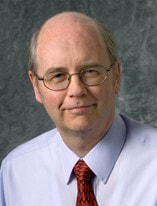
January 19, 2020: Guest speaker, Kory Meyerlink
"Proving Your Immigrant Ancestor"
Ancestry has 350 years of records that can identify your immigrant ancestors. From passport lists to naturalization records, and from family histories to passports, you are likely to find your immigrant on Ancestry. There are new sources, strategies, tools and techniques to uncover more of your family’s hidden history, especially their lives in the shtetl.
New York: A Genealogical Gold Mine: Almost every genealogist has one or more New York lines, and at least one appears to be a “dead end” line. How do I find my ancestor in New York?
This presentation introduces the key sources and records that can help overcome those questions and “brick wall” problems. We hope you will come to the meeting and join us for a most enjoyable and informative afternoon.
About Kory Meyerlink
Kory has been involved in almost every aspect of genealogy for the past 40 years. He is currently the Research Manager for Ancestry ProGenealogists and was one of the first Master Genealogists. He has written many print and online articles.
"Proving Your Immigrant Ancestor"
Ancestry has 350 years of records that can identify your immigrant ancestors. From passport lists to naturalization records, and from family histories to passports, you are likely to find your immigrant on Ancestry. There are new sources, strategies, tools and techniques to uncover more of your family’s hidden history, especially their lives in the shtetl.
New York: A Genealogical Gold Mine: Almost every genealogist has one or more New York lines, and at least one appears to be a “dead end” line. How do I find my ancestor in New York?
This presentation introduces the key sources and records that can help overcome those questions and “brick wall” problems. We hope you will come to the meeting and join us for a most enjoyable and informative afternoon.
About Kory Meyerlink
Kory has been involved in almost every aspect of genealogy for the past 40 years. He is currently the Research Manager for Ancestry ProGenealogists and was one of the first Master Genealogists. He has written many print and online articles.

November 17, 2019: Guest speaker, Richard Haynes
"The Holocaust Collection in Fold3"
The Holocaust Collection is found in Fold3, which is a division of Ancestry.com that provides access to military records from the Revolutionary War through current conflicts. The Holocaust Collection has over 3.3M records, including millions of names and 26,000 photos. Richard will also discuss the Fold3 World War II content and describe how to get free access to Fold3 records.
About Richard Haynes
Richard is a native Nevadan, born in Ely during World War II. He has had a life-long interest in military history and has been teaching Fold3 at the Las Vegas FamilySearch Library for years.
Richard has a BA in Economics from BYU and an MBA and an MA in U.S. History from UNLV.
"The Holocaust Collection in Fold3"
The Holocaust Collection is found in Fold3, which is a division of Ancestry.com that provides access to military records from the Revolutionary War through current conflicts. The Holocaust Collection has over 3.3M records, including millions of names and 26,000 photos. Richard will also discuss the Fold3 World War II content and describe how to get free access to Fold3 records.
About Richard Haynes
Richard is a native Nevadan, born in Ely during World War II. He has had a life-long interest in military history and has been teaching Fold3 at the Las Vegas FamilySearch Library for years.
Richard has a BA in Economics from BYU and an MBA and an MA in U.S. History from UNLV.
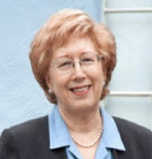
October 20, 2019: Guest speaker, Ann Gleich Harris (to be rescheduled)
"Uncovering Your Roots"
Today, more than at any other time, there is an explosion of available records and databases on the internet that can enable people to search for their family history from their home computer instead of writing letters to foreign archives or sending applications for vital records to various local authorities.
Many people are interested in finding out more about their family origins, but simply feel overwhelmed as to how to proceed, or they have tried and failed previously and have become discouraged.
What is needed is a guide who is experienced in genealogy research to show them how to get started or how to proceed. Our program will include information on how to choose a family history project, with handouts and resources. It will also show us how to use the resources found on the Gesher Galicia website.
The program will be interactive so that people will have the opportunity to share their interests and concerns, and to ask questions about their own current research.
About Ann Harris
Ann Harris, has been involved in family history research for over 30 years. She has been the CFO of Gesher Galicia for the past 7 years and was also a Board member of JGSLA. With the goal of making information accessible to researchers, she has translated information from a multitude of Yizkor books and tombstones. Her other outreach activities include helping to train beginning genealogists and giving community lectures.
"Uncovering Your Roots"
Today, more than at any other time, there is an explosion of available records and databases on the internet that can enable people to search for their family history from their home computer instead of writing letters to foreign archives or sending applications for vital records to various local authorities.
Many people are interested in finding out more about their family origins, but simply feel overwhelmed as to how to proceed, or they have tried and failed previously and have become discouraged.
What is needed is a guide who is experienced in genealogy research to show them how to get started or how to proceed. Our program will include information on how to choose a family history project, with handouts and resources. It will also show us how to use the resources found on the Gesher Galicia website.
The program will be interactive so that people will have the opportunity to share their interests and concerns, and to ask questions about their own current research.
About Ann Harris
Ann Harris, has been involved in family history research for over 30 years. She has been the CFO of Gesher Galicia for the past 7 years and was also a Board member of JGSLA. With the goal of making information accessible to researchers, she has translated information from a multitude of Yizkor books and tombstones. Her other outreach activities include helping to train beginning genealogists and giving community lectures.
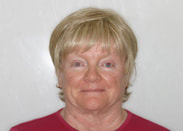
September 15, 2019: Guest speaker, Scherry Lesanto
"DNA Topics"
Information on various DNA Topics Including:
About Scherry Lesanto
Born in East Tennessee into ancestral lines dating back 400 years from Virginia, North Carolina and Tennessee; originally from Ireland, Netherlands, Germany and Viking blood from Norway. She has traveled extensively in the U.S., as well as to countries in Europe, South America, Mexico and Canada. Her work experience includes federal, state and local positions: Record Researcher-FBI; Agency Dir. Human Resources- in Massachusetts; and Financial Board member North Reading, Massachusetts. Scherry is a member of the Daughters of the American Revolution, and Jonesborough, Tennessee and Clark County, Nevada Genealogical Societies.
A public oriented person, Scherry was a member of the Civil Air Patrol and is a graduate of the Las Vegas Metropolitan Police Department Citizens Police Academy. She currently serves in the Las Vegas Family Search Library. She began Genetic Genealogy Research using DNA over 12 years ago, and currently manages over 50 DNA kits to include the respective family trees, and monitors over 25 more kits and counting at several DNA sites. She conducts DNA classes at the Library, as well as, DNA presentations throughout the Las Vegas area and in Tennessee.
"DNA Topics"
Information on various DNA Topics Including:
- Genealogical Tree verses DNA Tree
- Beginnings of DNA testing
- Discussion on different DNA companies
- Benefits of each DNA company and their limitations
- What kinds of DNA are tested and what do they mean
- y-DNA; MtDNA; Autosomal DNA and X Inheritance
- What do I do with my DNA now that I have tested?
- 3rd Party Sites to upload DNA and their benefits
- Shared cM Project Chart; a discussion of centimorgans (cM)
About Scherry Lesanto
Born in East Tennessee into ancestral lines dating back 400 years from Virginia, North Carolina and Tennessee; originally from Ireland, Netherlands, Germany and Viking blood from Norway. She has traveled extensively in the U.S., as well as to countries in Europe, South America, Mexico and Canada. Her work experience includes federal, state and local positions: Record Researcher-FBI; Agency Dir. Human Resources- in Massachusetts; and Financial Board member North Reading, Massachusetts. Scherry is a member of the Daughters of the American Revolution, and Jonesborough, Tennessee and Clark County, Nevada Genealogical Societies.
A public oriented person, Scherry was a member of the Civil Air Patrol and is a graduate of the Las Vegas Metropolitan Police Department Citizens Police Academy. She currently serves in the Las Vegas Family Search Library. She began Genetic Genealogy Research using DNA over 12 years ago, and currently manages over 50 DNA kits to include the respective family trees, and monitors over 25 more kits and counting at several DNA sites. She conducts DNA classes at the Library, as well as, DNA presentations throughout the Las Vegas area and in Tennessee.
